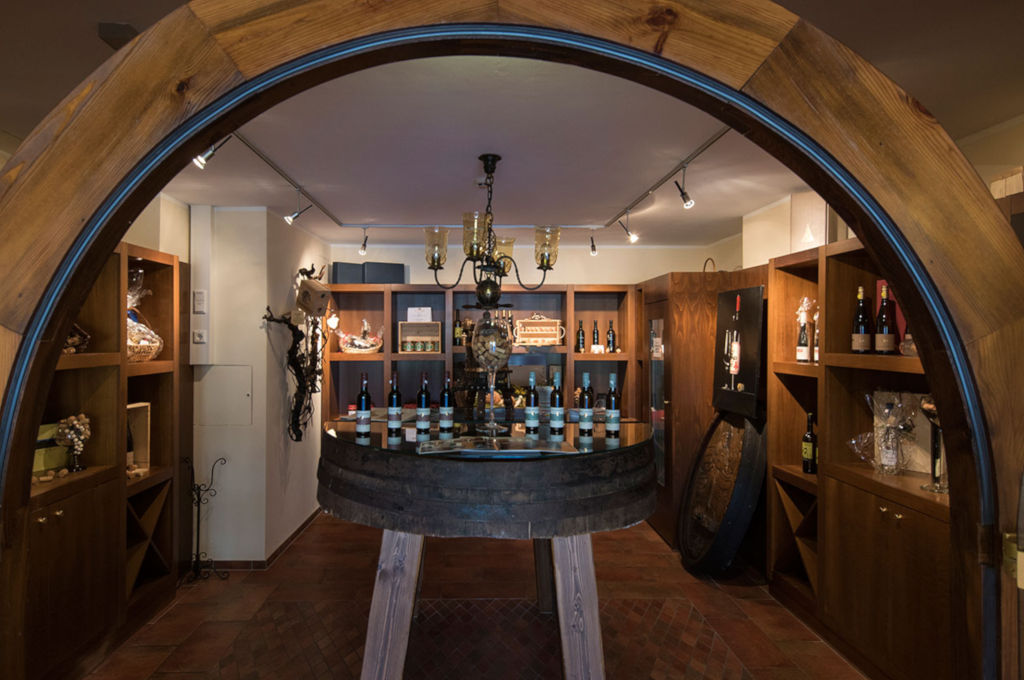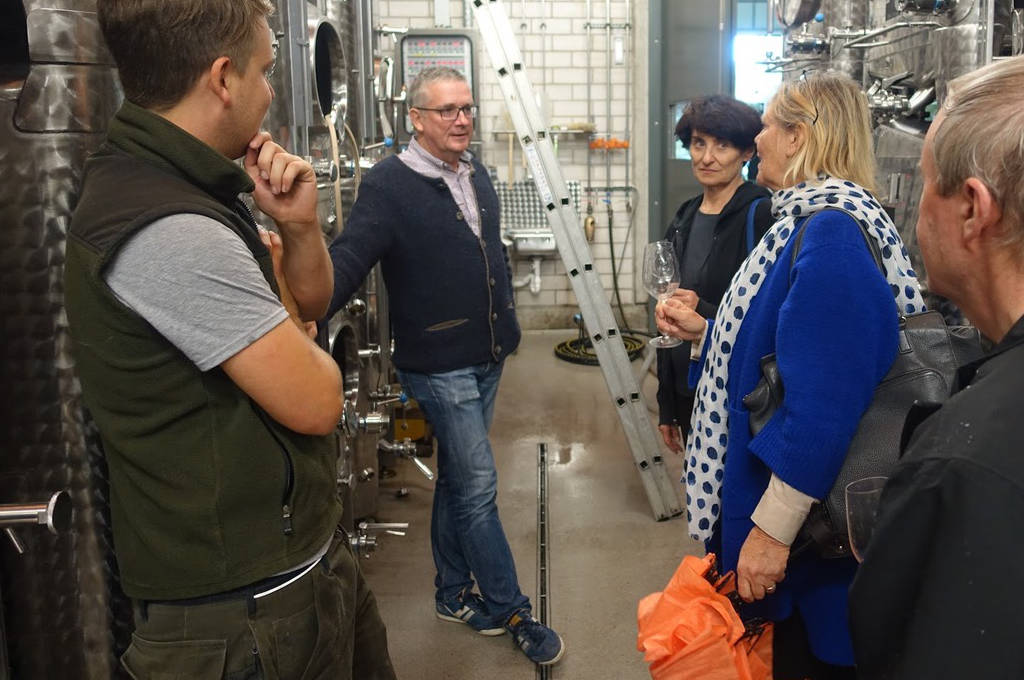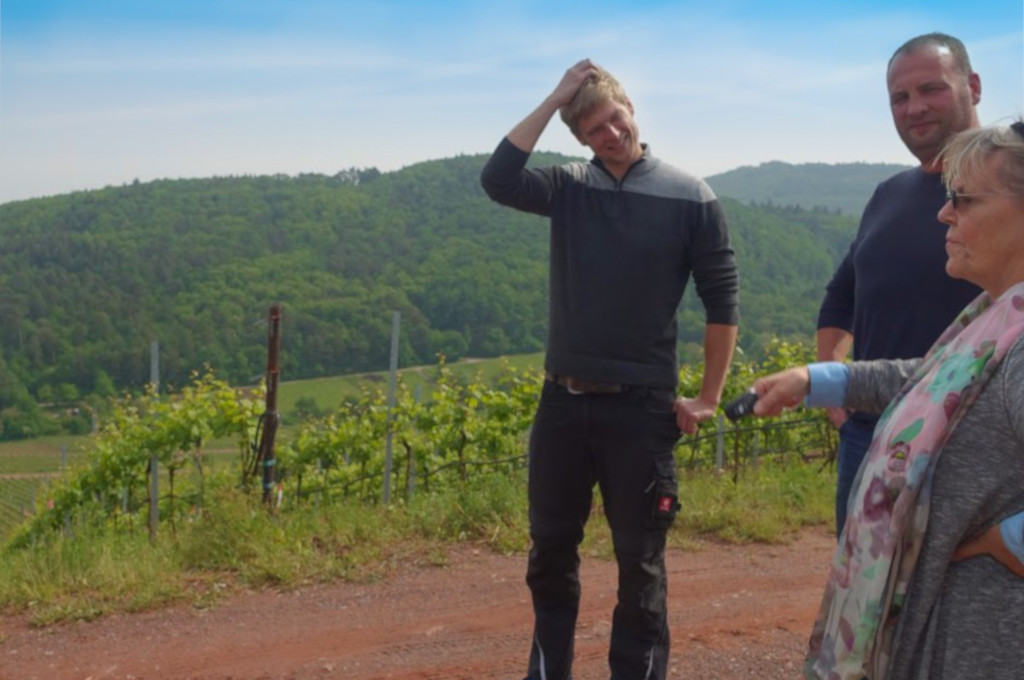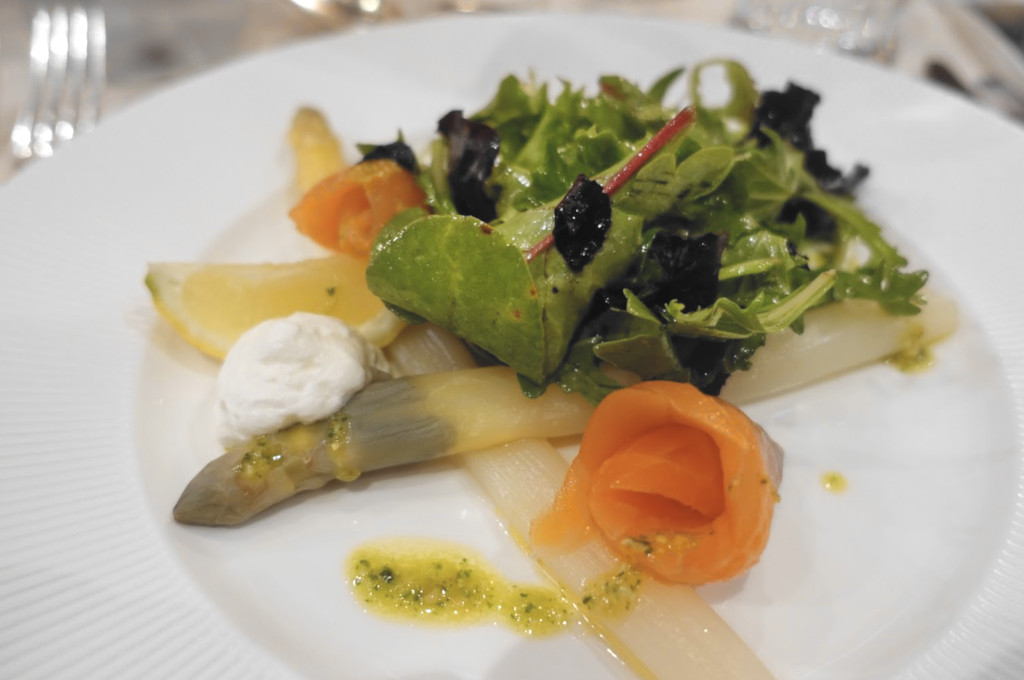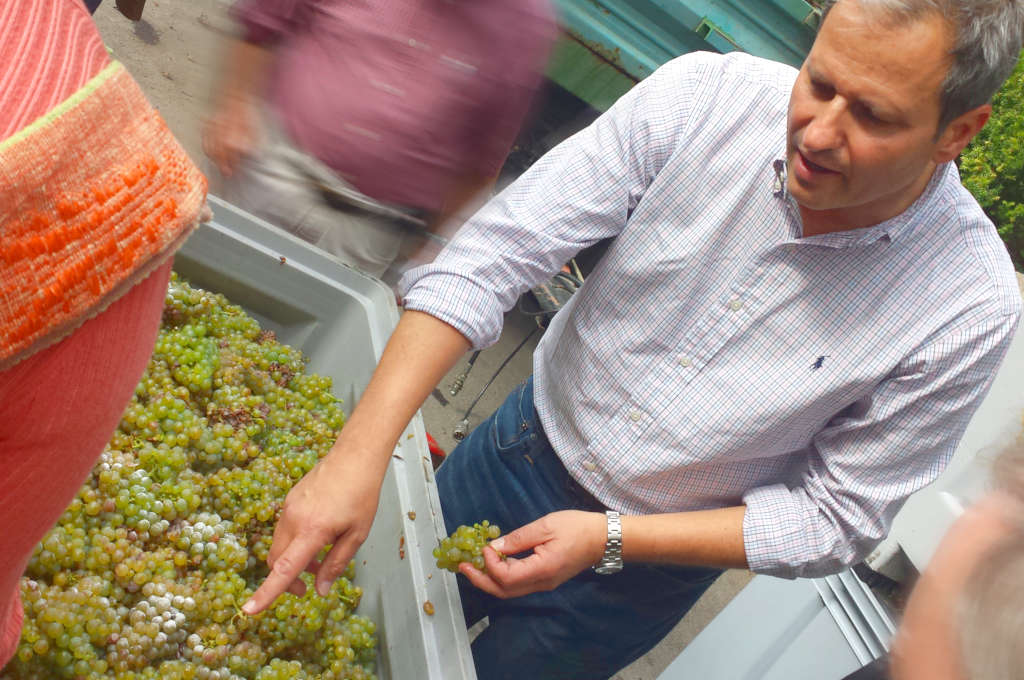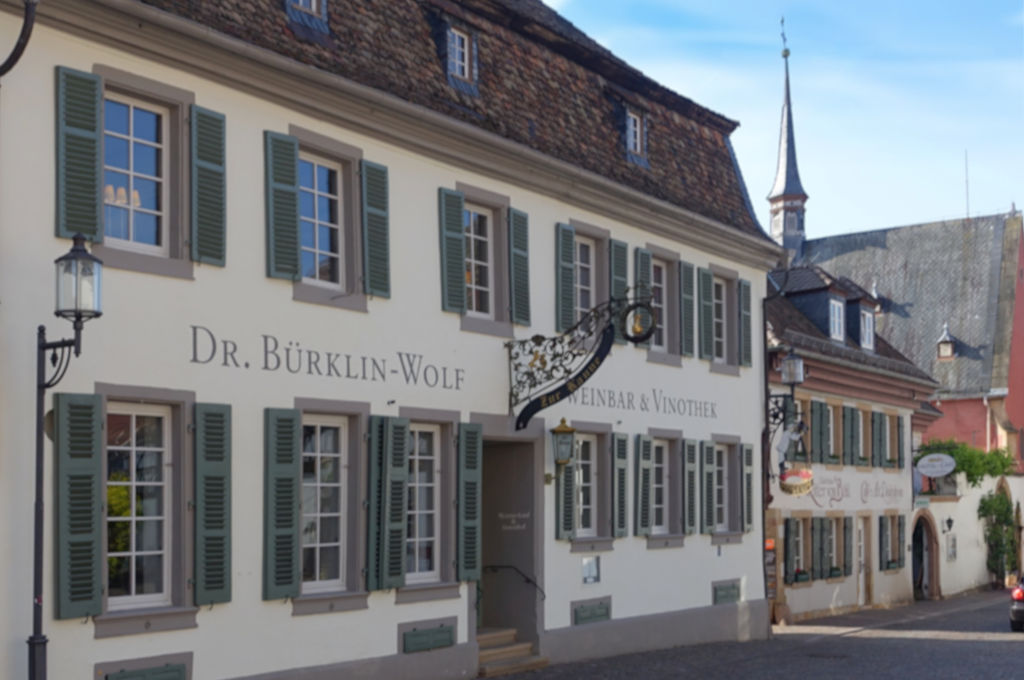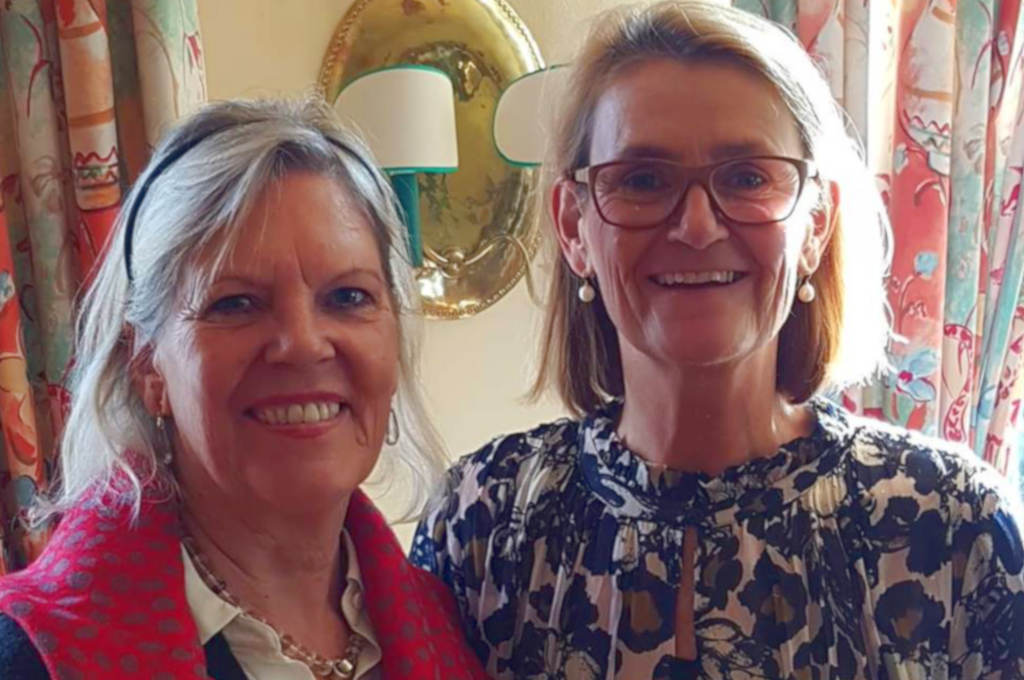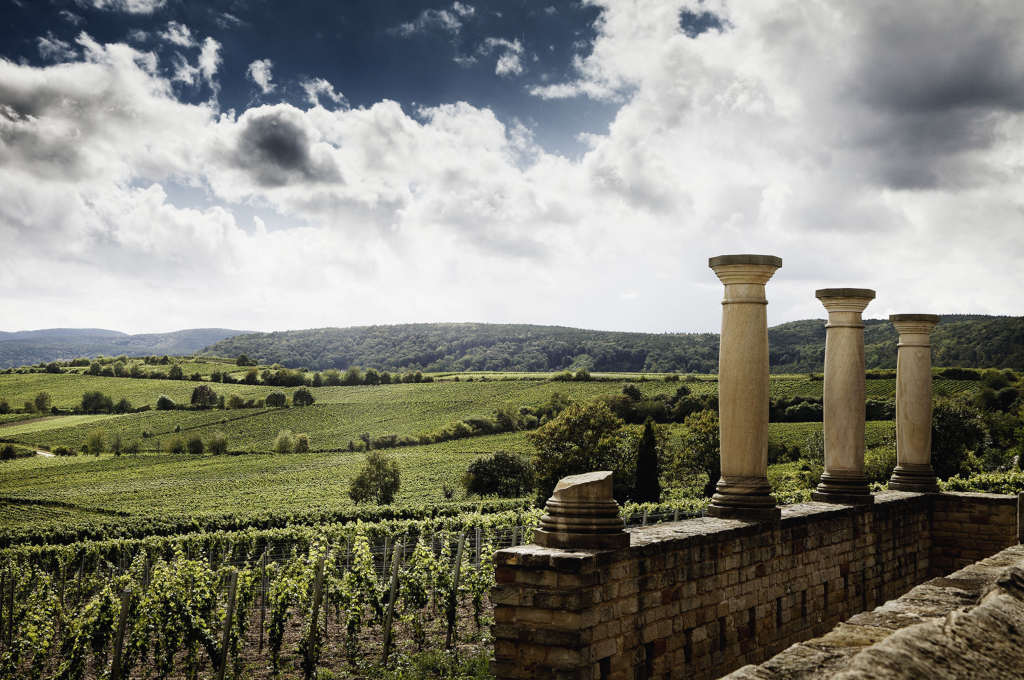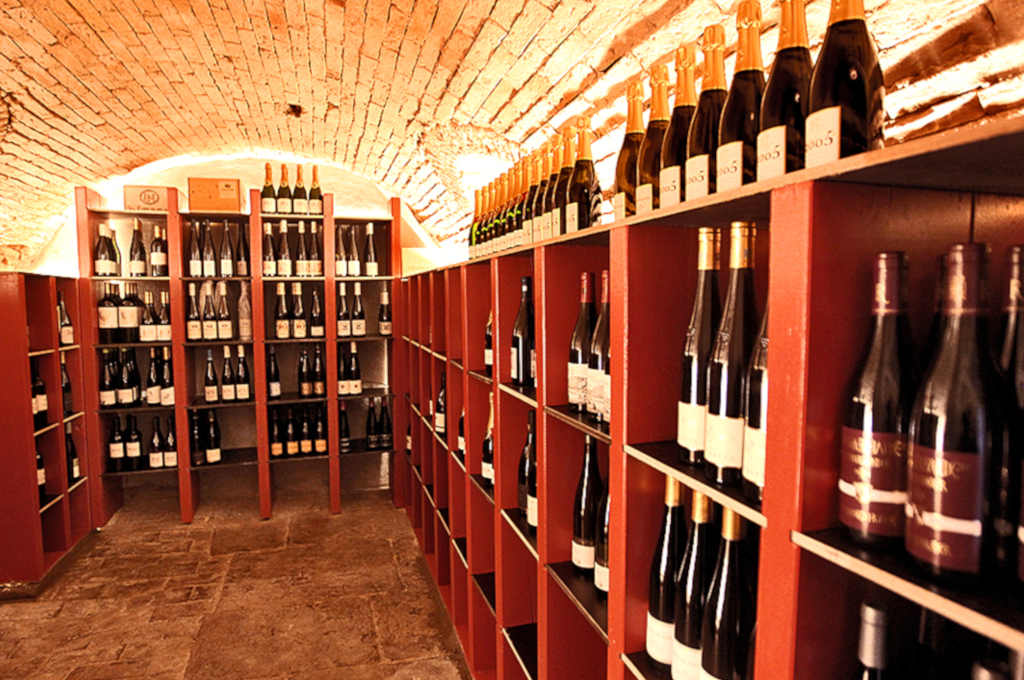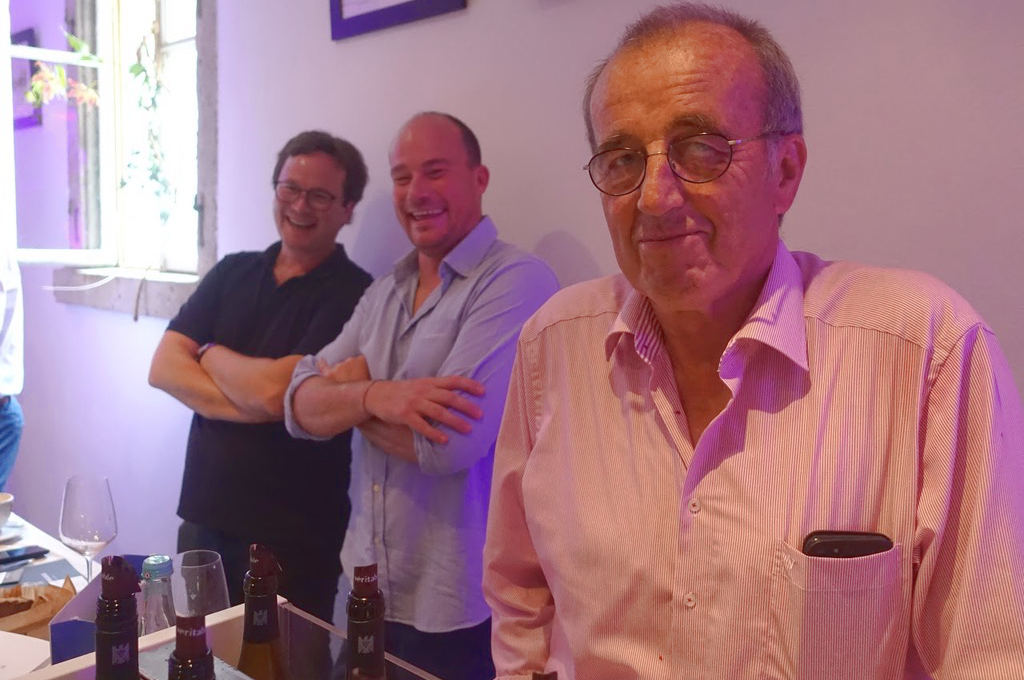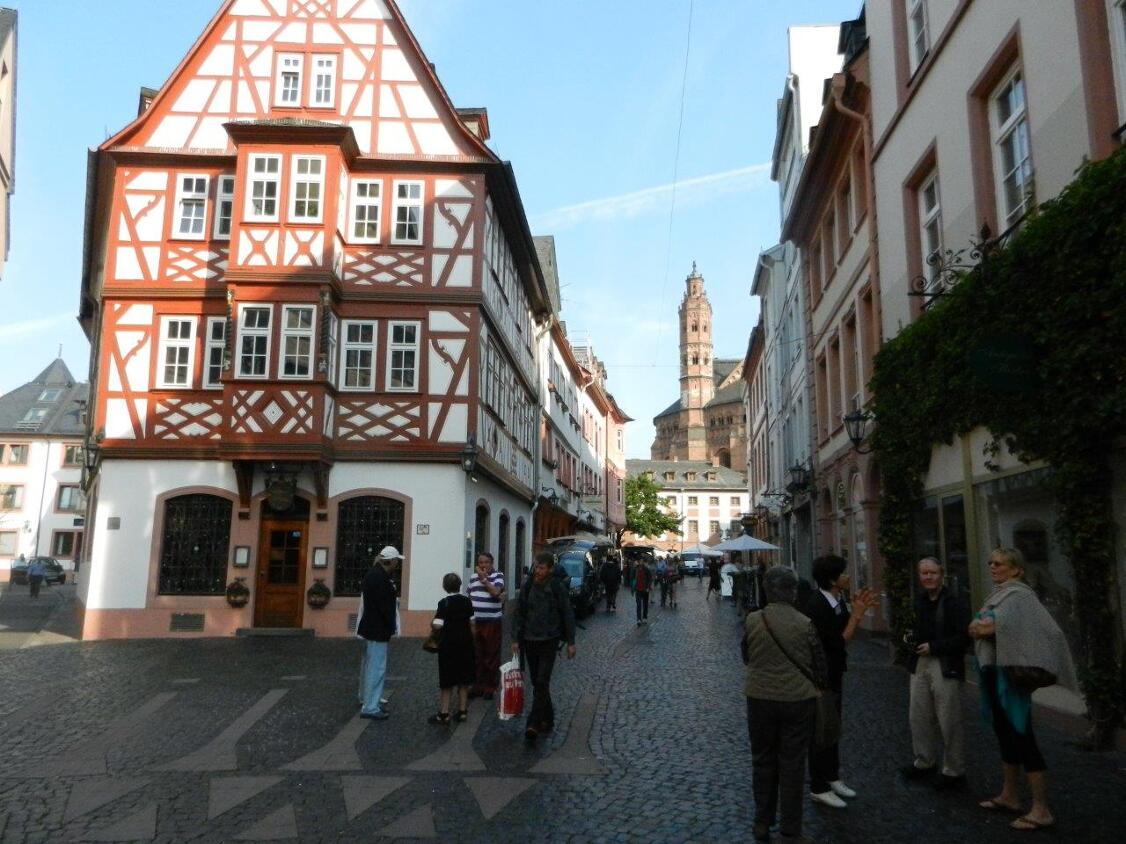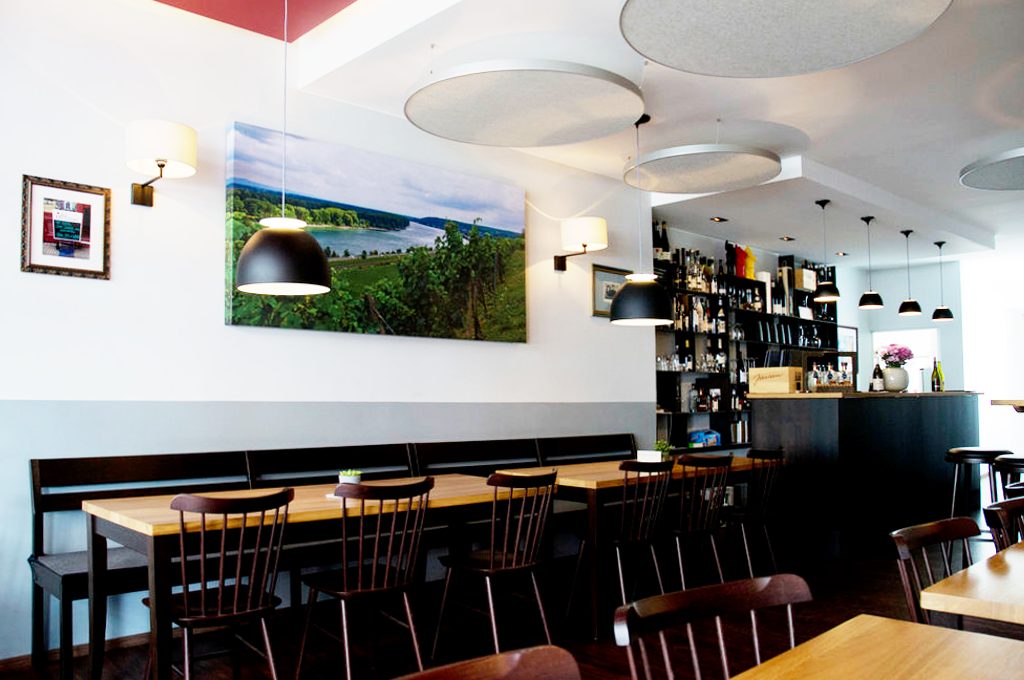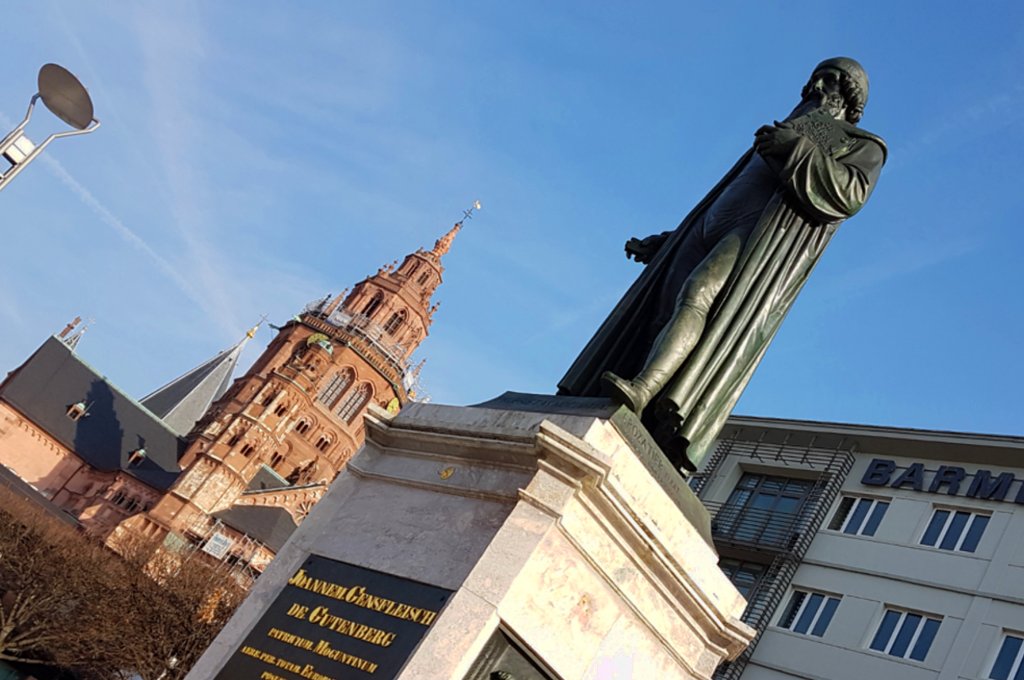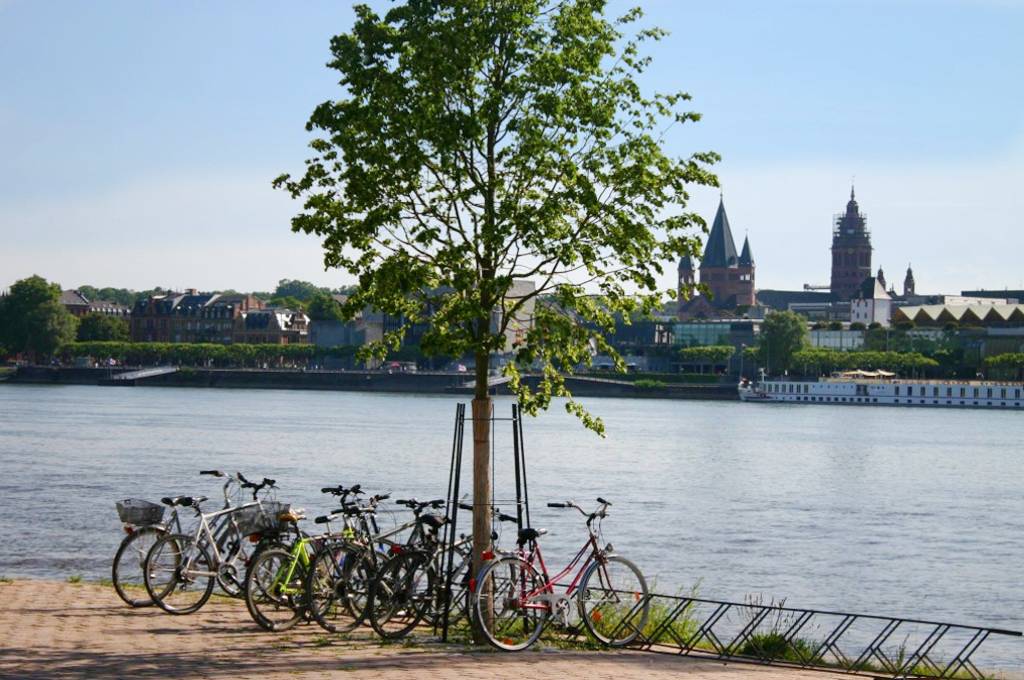German South and Alsace
Discover Germany’s southern wine regions where Rieslings have a very different taste profile than the ones from the more northern wine regions such as Mosel, Nahe, Rheingau. Explorer the culinary region of Germany and red wine country Germany. Discover the breathtakingly beautiful Alsatian wine region. For the start we will visit winery Dönnhoff in the Nahe region as an outstanding example of a “classic” German Riesling appreciated and known by wine aficionados around the planet. On the second day of our tour we travel to Rheinhessen, a region with gently rolling hills, sumptuous red and white wines, and a generation of young, ambitious, up and coming winemakers. Then we travel on to Baden, the southernmost and internationally fairly unknown region that produces bone dry, more opulent Rieslings, outstanding Pinot Noirs (in German: Spätburgunder), and whites from Burgundy grapes. We will step across the Rhine River to compare the very different style of wines of the eastern (German) and western (French) Rhine valley and we will get a feel for beautiful, quaint Alsace with its incredible picturesque wine villages dotted with half-timbered century old buildings. Enjoy 1-Michelin star meals at beautiful German and Alsatian restaurants. Enjoy the Pfalz, the second largest German wine region by growing area and only topped by Rheinhessen, which it borders to the north. From there, the Pfalz stretches to the French border 53 miles to the south and borders the French wine growing region of Alsace. The Mediterranean climate makes for full-bodied, yet elegant white wines, and gorgeous red wines. Discover the 2000 year old city of Mainz, one of the ten wine capitals of the World, where wine is one of the most important part of everyday life.
| Rheinhessen • Baden • Alsace • Pfalz |
Friday July 01 - Sunday July 10, 2022
Accommodation: 9 nights:
Night 1: Friday, July 01Hotel Hilton in Mainz, a modern 4 star hotel situated on the edge of old town Mainz on the picturesque banks of the mighty Rhine River. |
Night 2: Saturday, July 02Hotel Salischer Hof in Schifferstadt, a family-run 4 star hotel with beautifully appointed rooms in the half-timbered manor house of a former farm estate built in 1733. The acclaimed restaurant serves creative dishes using only local, fresh products. |
Nights 3 and 4: Sunday, July 03 and Monday, July 04Hotel Mercure in Freiburg, Breisgau, a 4 star modern hotel in the city center close to the famous Freiburger Cathedral with great views over Freiburg. |
Nights 5 und 6: Tuesday, July 05 and Wednesday, July 06Hôtel Les Remparts in Kaysersberg, Alsace, a 3 star hotel with a great view on the Kaysersberg castle and surrounding vineyards, just outside of the city gate of Kaysersberg, a very typical, picturesque, romantic Alsatian wine town. |
Night 7: Thursday, July 07Parkhotel in Landau, a 4 star hotel right in the center of Landau quietly located near a park and a lake. There is a nice indoor pool and spa area. The "Wine und Dein" Brasserie offers an exquisite choice of the best of Palatine wines. |
Night 8: Friday, July 08Achat-Premium Hotel in Bad Dürkheim, a 4 star first class hotel in the center of this spa town town on the edge of the "Kurpark". The hotel has a good restaurant, wine bar, and spa facilities. |
Night 9: Saturday, July 09Hotel Hilton in Mainz, a modern 4 star hotel situated on the edge of old town Mainz in walking distance to all interesting places in Mainz. |
DAY 1: Friday, July 01
AFTERNOONDeparture from Hotel Hilton in Mainz by coach. Visit and tasting at Weingut Wagner-Stempel (VDP) in Siefersheim, Rheinhessen.
Owner and winemaker Daniel Wagner is the 9th generation of this estate in Siefersheim, in the far northwestern corner of the Rheinhessen wine region. When Daniel took over he decided to build on the tradition of classic wine production and to pay special attention to the once famous vineyard sites Höllberg and Heerkretz that were somewhat under the radar for the past fifty years. The Siefersheim sites are carved out of volcanic hills and the weathered volcanic soil brings out phenomenal, well structured wines. Daniel’s thrive for precision and quality regularly gets awarded with 4 grapes in the Gault-Millau wine guide for Germany. |
Visit and tasting at Weingut H. Dönnhoff (VDP) in Oberhausen, Nahe. |
EVENINGBack at Hilton Hotel in Mainz.
Mainz is one of the 10 wine capitals of the world and wine is ubiquitous in this town that sits in the middle of three wine regions: Rheingau, Rheinhessen, Nahe |
DINNERDinner with wine at Weinhaus Bluhm in Old Town Mainz.
This restaurant / wine bar is tucked away in Old Town Mainz. Owners are the French/German father and daughter team Pierre and Mureille Stadelmann. Murielle is an accomplished opera singer but it is also her passion to conjure up delicacies with her father behind the stove. Their motto is: „French-Mainz-Fusion; this special connection between German ‚Gemütlichkeit’ and French ‚savoir-vivre’ is our goal.“ |
DAY 2: Saturday, July 02
MORNINGVisit and tasting at Weingut Wittmann ( VDP ) in Westhofen, Rheinhessen.
This winery in Westhofen has been in the hands of the Wittmann family since 1663. Current owner is Philipp Wittmann. Attachment to the native soil runs deep and in order to leave a legacy of healthy soils and vines the they were early adopters of organic (in 1990) and biodynamic (2004) viticulture. The old vaulted underground cellar with its consistent temperature provides the perfect conditions for the wine to ferment spontaneously with its own natural yeast in wooden casks. The 62 acres of vineyards in the rolling limestone hills are planted primarily with Riesling. Because of the almost Mediterranean climate in southern Rheinhessen, the Burgundy grapes also have a long tradition in viticulture. The Wittmanns were among the pioneers in developing the full-bodied, well-balanced style of bone-dry wines that have tension, depth, and intensity, for which the region has become known. |
LUNCHLunch (beverages on your own) at Gaststätte Bollmann in Flörsheim-Dalsheim.
|
AFTERNOONVisit and tasting at Weingut Keller (VDP) in Flörsheim-Dalsheim, Rheinhessen.
The French Revolution did Germany an incredible favor: it gave the Germans Klaus-Peter Keller. His ancestor fled the commotion of those days and settled in Flörsheim-Dalheim in 1789, bought the estate and started to make wine. Today, four generations of the family, everyone a wine enthusiast, run the winery. Since 2000, Klaus-Peter Keller is responsible for making the wine, and has brought a new dimension to the winery. Before taking over at home he worked in Burgundy, which clearly leaves traces in the wines he produces from Burgundy grapes. In 2008 Jancis Robinson said in the Financial times: “If I had to choose one wine to show how great dry German Riesling can be I would choose a Keller Riesling. Those wines are the German Montrachets.” I also quote Stephen Bitterolf, owner of vom Boden imports, who beautifully described the ,Kellers’: “Klaus Peter and Julia Keller have achieved a level of fame comparable only to Egon Müller in the Saar. In less than a decade, Keller has become one of the country’s greatest addresses. What makes this even more intriguing is that Keller is located in the Rheinhessen, one of the most maligned German winemaking regions. What’s more, they are located in what is usually considered the worst part of the Rheinhessen, the ‘Hügelland’ – a double whammy if ever there was one. Yet Keller has inspired an entire generation of young winemakers and single-handedly given birth to a Renaissance in the Rheinhessen. Storied vineyards that were all but forsaken – Kirchspiel, Hubacker, Morstein and Abtserde to name a few – are now seen as holy ground for Riesling and command some of the highest prices for dry wines in Germany. Keller’s grand cru Rieslings are larger-than-life wines of incredible density and power; they are thoroughbreds. Yet what no one does better than Keller is to shape this considerable intensity into a form that is elegant, finessed — beautiful. Yes, a Keller GG is incredibly concentrated, lavish with detailed fruit, yet the minerality, the clarity, the form is what makes these wines unforgettable.” |
Visit and tasting at Weingut Liebfrauenstift in Worms, Rheinhessen.
The origins of this historic winery go back several centuries. In 1276 construction in Gothic style of the ‚Liebfrauenkirche’ (Church of Our Lady) started. A Capuchin monastery was added to the church and vineyards were planted around the church to provide for income. In 1808, after secularison by Napoleon, the Dutchman Peter Joseph Valckenberg bought the remainng part of the Capuchin Monastery as well as most of the original vineyards of the famous ‚Liebfraumilch’. The business developed very well and among the early consumers were the Swedish royals, the Duke of Norfolk and poets Charles Dickens and Victor Hugo. In the 19th century the price lists of Berry Brothers & Rudd in London showed prices in the same range as Châteaux Margaux, Châteaux d’Yquem, Châteaux Latour. Today the winery is owned by a descendant of the family, 7th generation Wilhelm Steifensand. „We want to be at the top – the winery must go back to where it was before“ says Wilhelm Steifensand. He and his wife Dr. Katharina Prüm commissioned Heiner Malaton, a highly praised winbemaker in professional circles, with the management of the estate. The Liebfrauenstift-Kirchenstück vineyard is a ‚Clos’ just like in Burgundy, totally surrounded by a stone wall which provides for a very special micro-climate. The wines are matured in the historic Elefantenkeller, the ancient vault deep below the manor house of the Capuchin monastery which is now the family home. In recent years the quality of the wines have much improved. „But we can do much better“ says Wilhelm Steifensand. In the next few years Heiner Malaton wants to convert to organic viticulture, and natural, spontaneous fermentation. In the 2017 and 2018 vintages new influences can already be tasted. |
EVENINGCheck in at Hotel Salischer Hof in Schifferstadt. |
DINNERDinner (beverages on your own) at Möllers Restaurant in the Salischer Hof. |
DAY 3: Sunday, July 03
MORNINGVisit and tasting at Weingut Sven Nieger in Baden-Baden-Varnhalt, Ortenau, Baden.
The Sven Nieger belongs to the young generation of winemakers who are excellently educated and well travelled. They are the „enfants terribles“ of the wine scene since they follow their very own ideas that sometimes clash with the etablishment and wine laws. This is a very new winery, Sven – who did not have the advantage of growing up in a winemaking family- came home to Baden-Baden after earning his degree in oenology from the prestiges Geisenheim university, and after working abroad in Austria and in New-Zealand at Framingham, one of the best producers in New Zealand. He founded his own winery and in May 2012 his winery was officially inaugarated. He leased some vineyards, bought some deserted vineyards on very steep slopes, and was lucky enough to get some vineyards with sixty year old vines. He currently has around 26 acres, among them are prestigious plots such as Mauerberg, Klosterbergfelsen und Stich den Buben. He makes wines with a unique taste profile, and he loves making cuvées, which does not sit well with the authorities who assign the AP numbers (The official examination number -AP nr.- is the officially assigned number for the individual labeling of wines or brandys that meet certain quality and taste profiles.) As a result Sven does not present his wines anymore to the regulatory board and hence his wines are all in the „Landwein“ category, and not in the „Qualitätswein“ category. But wine critics love his wines. I quote the wineguide Falstaff 2018: „Sven Nieger was a sensation with his impressive single vineyard Rieslings from Baden-Baden, but his wines are often denied an AP number. The white wine cuvée „Unbeschwert“ (easy going) tastes as it is called, and the powerful 2015 Riesling will get even better with maturity. Nieger shows a sensitive touch for the Pinot variety and a fine judgement when dealing with the barrique.“ Our next winery visit to Schloss Neuweier will be very interesting since we will taste wines from the same vineyards sites as here. |
LUNCHWine pairing lunch with Nieger wines and Chef Farid Fazel in the vineyards in Varnholt.
Chef Farid Fazel, a friend of Sven Nieger, knows how to conjure up creative culinary delights with top-quality local products open to the rich aroma kitchens around the globe. It is very special to share a meal and corresponding wines exactly at the spot where the wines come from. In case of inclement weather we will have the luncheon either in the fermentation celler or in Sven’s home. |
AFTERNOONVisit and tasting at Weingut Schloss Neuweier (VDP), Ortenau, Baden.
Wine has been produced at this impressive 13th century castle for more than 700 years. About 100 years ago Riesling became the dominant grape and passion. Still today, winemaking takes place in the vaulted cellars that date back to the 17th century. In 2012 the Schätzle family bought the estate and continues to produce wines of uncompromising quality. Robert Schätzle, the winemaker, studied oenology and comes from a family with a long tradition of winemaking in the Kaiserstuhl region to the south. The Rieslings grow in the steep (60%) vineyards Schlossberg and Mauerberg which were already terraced in historical times. The narrow terraces only accommodate two rows of vines and have man-high retaining walls of natural stones. This situation makes for a perfect heat storage and shields the cool winds from the Black Forest. This very special microclimate is the basis for the fresh, minerally, racy wines with excellent aromas of citrus and exotic fruit. |
EVENINGCheck in at Mercure Hotel in Freiburg, Breisgau, Baden.
The evening (dinner on your own) is free for you to explore the beautiful city of Freiburg. Our hotel is a five minute walk from Freiburg’s main square. Freiburg is Germany’s warmest city with over 2000 hours of sunshine annually and sitting at the foot of the highest peaks of the Black Forest mountain range. It is a sunny, cheerful university town, ist medieval Old Town a story-book tableau of gabled town houses, cobblestone streets, and café-rimmed suqares. The main sight is the 11th century cathedral, called ‚Münster’, a red sandstone mighty building that looms above the half-timbered facades framing the plaza. To walk around town you need to take extra care not to step into the small canals that run along the sidewalks to manage the water that runs down from the mountians into the city when the snow of the mountain tops melts. |
DAY 4: Monday, July 04
MORNINGVisit and tasting at Weingut Bercher (VDP) in Burkheim, Kaiserstuhl, Baden.
The history of the Bercher family in the Kaiserstuhl region can be traced back to 1457 when the family moved from Switzerland to Burkheim after the end of the Thirty Year War. In 1756 Franz-Michael Bercher built the manor house with the vaulted underground cellar which has since been the seat of the winery to this day. Today it is the 10th generation of the Bercher family, brothers Martin (vineyard manager) and Arne (winemaking) that is at the helm of the estate. The 62 acres of vineyards are planted mostly with Burgundy grapes: 40% Pinot Noir, 23% Pinot Gris, 17% Pinot Blanc, some Chardonnay and also some Rieslings. The Kaiserstuhl region is the warmest grape growing area in Germany and the soils consist of mineral-rich, chalky loess on top of volcanic subsoils. Weingut Bercher belongs to the top estates in Germany with 4 stars (out of 5) in the 2018 Vinum wine guide for Germany. |
Visite and tasting at Weingut Stigler (VDP) in Ihringen, Kaiserstuhl, Baden.
The winery Stigler was founded in 1881. Today it is run by the fourth generation of the founding family. The 28 acres under vine are planted with the Burgundy grapes – 36% with Pinot Noir - as well as 14% with Riesling, some Traminer, Sauvignon-Blanc, and Chenin Blanc, the only one in Germany. Andreas Stigler’s philosophy of wine making is very classic. Careful handling and long ageing periods in barrels brings forth mineral-rich wines with lots of character and a long ageing potential. Basically the Kaiserstuhl sub-region of Baden is a Burgundy grape domain. But Andreas Stigler also grows Rieslings here. This is his justification: We will continue to make Rieslings because Riesling thrives excellently here in the Kaiserstuhl. Of course there are bad years too as we unfortunately experienced in 2014. 2013 was a better year – we could save the grapes into the sweet sector. But 2015, 2018 are without a doubt gigantic years for the Riesling. This lets us sustain the Riesling. What I want to emphasize though is that Kaiserstuhl – and especially Ihringen – is a region where you can find a big diversity of different types of grapes with a very good ripeness. |
LUNCHLunch (beverages on your own) at restaurant Holzöfele in Ihringen, just across the street from Weingut Bercher.
|
AFTERNOONVisit and tasting at Weingut Koebelin in Eichstetten, Kaiserstuhl, Baden.
Arndt Koeblin took over his parents’ estate in the Kaiserstuhl region of Baden in 2004. Before that, he was the head winemaker of the Winzergenossenschaft (wine co-operative) Durbach. He also did internships in New Zealand and in Burgundy. The vineyard area is 28 acres; the majority is planted with the Burgundy grapes, and the rest with Gewürztraminer, Scheurebe, Rivaner, Muskateller, and a bit of Riesling. In 2004, when Arndt started to make his own wine he knew that he had to change the ways of winemaking. He invested heavily; he built an ultra modern, puristic winery with a fantastic terrace guaranteeing for spectacular views on the vineyards and the Black Forest and Vosges mountains. In the vineyards he converted to organic farming. In particular his Pinot Noir is outstanding and on par with the best of Burgundy. He belongs to the up and coming winemakers in Baden and was awarded the third grape in the 2016 Gault&Millau wineguide for Germany. |
EVENINGBack at Hotel Mercure in Freiburg.
The evening is free for you to relax, since we have a busy day tomorrow tomorrow. |
DAY 5: Tuesday, July 05
MORNINGVisit and tasting at Weingut Ziereisen in Efringen, Markgräfler Land, Baden. |
Leaving Germany and crossing the Rhein river going to France.
We will leave the Baden area on the right bank of the Rhine River, at the foot of the Black Forest Mountains, and cross over the Rhine river into France, into the Alsace region. This lies just across from Baden on the left bank of the Rhine at the foot of the Vosges Mountains. |
LUNCHLunch (beverages on your own) at restaurant La Table de Fred in Issenheim, Alsace.
This is a traditional Alsatian restaurant serving a quality lunch menu with fresh, seasonal local specialities. |
AFTERNOONVisit and tasting at Domaine Dirler-Cadé in Bergholtz, Alsace.
This winery exists since 1871. Today it is managed by the 5th generation of the Dirler family, Jean Dirler. In 1998 Jean married Ludivine, daughter of Leon and Nicole Hell-Cadé, wingrowers in neighboring Guebwiller. In 2000 Ludevine’s parents plots of vines were integrated into the Dirler estate and the domaine was renamed Dirler-Cadé. The domaine has 43 acres of vineyards of which 42% are Grand Cru sites. In the 19th century Domaine Dirler was pioneer with the Domaine Dopff of Riquewihr in producing sparkling wines according to the Méthode Champenoise, called Crément d’Alsace. In 1998 Jean Dirler and his father decided to convert the estate to a Biodynamic agriculture. They introduced ploughing with a draft horse. The conversion process finished in 2004 and from the harvest of 2007 the estate is 100% Biodynamic, and obtained the label “AB” (biological agriculture) and the label “BIODYVIN” for biodynamic agriculture. |
EVENINGArrival and check-in at Hôtel Les Remparts in Kaysersberg, Alsace.
Soak in the incredible beautiful medevial town of Kaysersberg. |
DINNERDinner and Alsatian wine at restaurant Au Lion d'Or in Kaysersberg, Alsace.
This is a cosy wine tavern that serves excellent food, seasonal specialities, and good Alsatian wine. |
DAY 6: Wednesday, July 06
MORNINGVisit of La Ferme du Versant du Soleil, a cheese dairy in the Vosges Mountains.
Here we learn everything there is to know about making the famous “Munster” cheese. |
Visit and tasting at Vins Schoenheitz in Wihr-au-Val, Alsace.
Vines have grown in this region of the Alsace since medieval times. In the 1970s, Henri Schoenheitz, passionate about history and love of this land where he was born, undertakes to give new life to this beautiful vineyard, whose legacy was almost forgotten. Slowly, while this is still a mixed farming region, he redraws the original contours of the Wihr-au-Val vineyards and clears and replants the steep hillsides. In 1980, Henri Schoenheitz and his wife Dominque, graduates in viticulture and oenology, vinified their first vintage. Today they cultivate 45 acres of vineyards which are entirely concentrated on the steep slopes of the magnificent Valley of Munster, at the beginning of the Vosges Mountains and are the highest vineyards in Alsace. The slopes are so steep that using machinery is impossible and everything has to be worked by hand. Granitic soils and extreme conditions of vine growing develop pure and great expression of the noble grapes varieties of Alsace. The Schoenheitz follow a sustainable agriculture respectful to the environment: minimizing the pollution of waters, air and soil, preserving and supporting the long-term balance of soil, planting natural grass between the rows, using no chemical fertilizers, limiting all treatments to those strictly necessary, a strict selection on the vine, and considering the carbon footprint. |
LUNCHTraditional Alsatian lunch (beverages on your own) at restaurant Au Raisin d'Or in Zimmerbach, Alsace. |
AFTERNOONVisit and tasting at Domaine Zind-Humbrecht in Turckheim, Alsace.
The domaine Zind-Humbrecht is unquestionably one of the greatest domaines in Alsace. “Winegrowing is a passion that has been passed down from father to son in the Humbrecht family since the 17th century. Domaine Humbrecht today comprises of 100 acres of vines, spread out over an array of different terroirs in the geological patchwork which is the Alsatian wine region and birthplace of our noble grape varieties.” That’s how the Humbrechts describe their domaine. The domaine was established in 1959 through the amalgamation of the Humbrecht vineyards in Gueberschwihr, and the Zind Family vineyards in Wintzenheim, following the marriage of Léonard Humbrecht and Geneviève Zind. Today their son Oliver Humbrecht, who is the first Frenchman to have received the Master of Wine title, and Léonard Humbrecht run the domaine. Since 1997 the vineyards are farmed biodynamically. Work in the vineyards is organized according to moon phases and burying cow horns to improve the vitality of the soil, as well as preparing natural compost at home are some of many practices followed at the Zind-Humbrecht domaine. |
EVENINGBack at Hôtel Les Remparts in Kaysersberg, Alsace.
Take the time to walk around Kaysersberg. It is a beautiful village and birthplace of Albert Schweizer (there is a Albert Schweizer museum), the theologian, writer, organist, humanitarian, philosopher, and physician who received the Nobel Peace Prize in 1952 for his philosophy of “Reverence of Life”. He also lived his philosophy by founding a hospital in the very remote village of Lambarene in Gabon, where he worked and died at age 90 in 1965. |
DINNERWine pairing dinner at La Table du Gourmet, a 1 Michelin starred restaurant in Riquewihr, Alsace, created by chef Jean-Luc Brendel.
Enjoy an epicurean experience in Alsace at the La Table du Gourmet. The restaurant is in a beautifully restored medieval building and chef Jean-Luc Brendel serves exquisitely executed dishes where each course is another “wow” surprise. We ate there several times and have never been disappointed. |
DAY 7: Thursday, July 07
MORNINGVisit and tasting at Domaine Weinbach in Kaysersberg, Alsace.
The Domaine Weinbach is one of the most prominent estates in Alsace. It is beautifully situated at the foot of the majestic Schlossberg hill within the 12.5 acres large Clos des Capucines, the former Capuchin monastery still today completely surrounded by a high stone wall. Today 73 acres of vineyards belong to Domaine Weinbach. The Capuchin monks started making wine in 1612 and established the Domaine Weinbach. During the French revolution it became a national property. In 1898 the domaine was acquired by the Faller brothers. Théo Faller, the next generation, developed the estate into one of the best wineries in Alsace. His unrelenting commitment to delivering excellence and his focus on the incomparable terroirs and grape varieties produced wines of the highest quality. After Théo’s death in 1979, the winery was managed by his widow Colette and their two daughters, Laurence and Catherine, who continued the commitment to quality. In 1998 they started the process of converting to biodynamic winemaking. I quote the Fallers: “The main motivation is to increase soil activity and thus stimulate soil/root/aerial system exchanges with the objective of producing better quality, terroir driven and aromatically complex grapes and wines. Biodynamics helps us care for and protect our vines not only for now but also for future generations.” In 2014 Laurence died at age 47 and in February 2016 Colette passed away. Catherine Faller is now the sole manager of the estate. |
Visit and tasting at Domaine Albert Boxler in Niedermorschwihr, Alsace
The Boxler family, originally from Switzerland, moved to Niedermorschwihr in 1673 and throughout the centuries acquired 34 acres of vineyards around the village. Albert Boxler, from whom the Domaine takes its name, was the grandfather of the current owner and winemaker Jean Boxler, and was the man who took the initiative in bottling his own wines just after World War II. Albert’s cousin, a painter, designed the labels, which are in use until today. Jean Boxler took over from his father Jean-Marc in 1996. The vins eyards are now planted with 40% Riesling, 15% Pinot Gris, 15% Pinot Blanc and Gewürztraminer, Sylvaner, Muscar. I quote Kermit Lynch, their importer: “The family’s holdings are dominated by the imposing granite hillside Grand Cru, Sommerberg. Jean vinifies micro-parcels within this Crus separately, de-classifying some into his Réserve wines and producing multiple bottlings of Sommerberg from the different lieux-dits depending on the vintage. Sommerberg gives racy, intensely structured, very long-lived wines. Riesling, Pinot Gris, and Pinot Blanc are the specialties of the domaine, Jean also produces one of Alsace’s best Crémants (and Edelzwickers), an incredible Gewurztraminer grown in limestone, and some of the most hauntingly pure Vendanges Tardives and SGNs (Sélection de Grains Nobels) in all of Alsace. If that weren’t enough, the Boxlers also own land in the powerful Grand Cru Brand, the ultimate counterpart to their holdings in Sommerberg.“ |
LUNCHLunch (beverages on your own) at restaurant Le Maximilien (1 * Michelin) in Zellenberg.The restaurant sits in the heart of the vineyards in Alsace providing for panoramic views from the terrace in the summer. Le Maximilien is a renowned dining destination. Chef Jean-Michel Eblin presents an innovative and contemporary cuisine combining the flavours of the Alsatian terroir. |
AFTERNOONCellar tour and tasting at Maison Trimbach in Ribeauvillé, Alsace.
The wine-growing history of Maison Trimbach dates back to 1626. Today the estate is run by the 11th, 12th, and 13th generation of Trimbachs: Hubert Trimbach, the senior boss, his nephews Jean, who takes care of sales and marketing and Pierre who is the winemaker. 13th generation Anne, Pierre’s daughter, follows in Jean’s footsteps and Julien, Jean’s son follows in Pierre’s footsteps. The 100 acres of bineyards stretch over fifty parcels and six villages. The jewel in the crown is the “Clos Sainte Hune” vineyard, the filet piece in the Grand Cru Rosacker in the village of Hunawihr with an average of sixty year old vines. Trimbach wines acquired true international acclaim in 1898 when Frédéric Emile (in honor of him, one wine is named Frédéric Emile) Trimbach received the highest distinction at the International Wine Fair in Brussels. “All French 3 star Michelin restaurants carry Trimbach wine”says Jean Trimbach. This says it all: Maison Trimbach produces wine of the highest quality. |
We are driving north along the Alsation wine trail.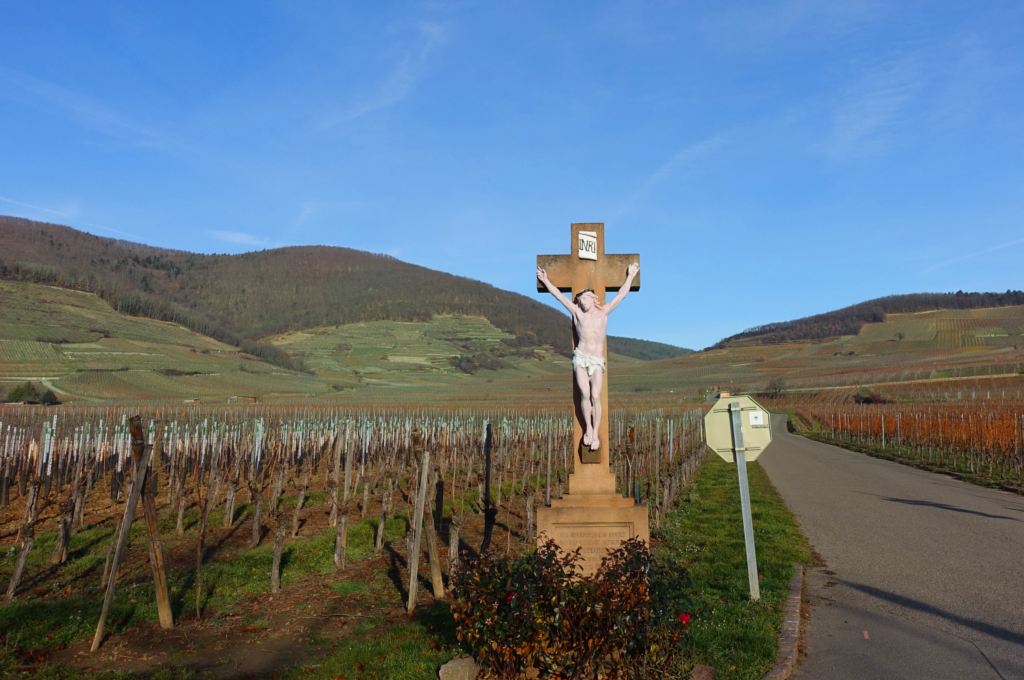 |
At Wissembourg - Weissenburg we cross into Germany into the Pfalz wine region.
|
EVENINGCheck-in at Hotel Leinsweiler Hof in Leinsweiler.
This is q quiet hotel in the middle of the vineyards with a great indoor pool, a good restaurant and wine bar: the perfect spot to relax after a long days journey. Dinner is on your own. |
DAY 8: Friday, July 08
MORNINGVisit and tasting at Weingut Ökonomierat Rebholz (VDP) in Siebeldingen, Pfalz.
Hansjörg and Birgit Rebholz, the third generation of the Rebholz family continue what the founder, the Ökonomierat Eduard Rebholz began: producing highly individualistic wines by working as close as possible with nature. Today the winery works according to biodynamic principles. The Rebholz wines do not undergo any chaptalization, fining, or deacidifying nor will sweet reserve be added to underscore the individuality of the terroir, the climate, and the grape. The Rebholz were the pioneers to produce through fermented dry wines in the southern Pfalz region. 75% of the 47 acres under vine are planted with Riesling and the Burgundy grapes, 10% with Chardonnay and the rest with Silvaner, Sauvignon Blanc, Muskateller and Gewürztraminer. Due to the purity the wines have an enormous ageing potential. Hansjörg Rebholz motto is: “No compromise!" The famous vineyard sites are “Kastanienbusch” and “Im Sonnenschein”. Hans-Jörg Rebholz is one of the top five in the Germany wine scene. |
Visit and tasting at Weingut Dr. Wehrheim (VDP) in Birkweiler, Pfalz.
The winery is relatively young by German standards. It was founded in Birkweiler just after World War I by Karl Wehrheim. His son, Dr. Heinz Wehrheim studied acrigultural sciences, did a stint in the US, and continued to expand the vineyard size and the business. Today it is the third and forth generation, Karl-Heinz and Franz Wehrheim, who are at the helm of the estate. The vineyards cover 44 acres on steep slopes in eleven different plots, the majority is located in Birkweiler, among them is the famous “Kastanienbusch”. We will have the fantastic opportunity to do a back to back tasting of the Rebholz and Wehrheim Riesling “Kastanienbusch”, wines from two exquisite producers. The Dr. Wehrheim vineyards are also farmed under the guidelines of biodynamic viticulture. Depending on the type of wine, the wines are aged in stainless steel or in wooden barrels. |
LUNCHLunch (beverages on your own) at Ritterhof zur Rose in Burrweiler, Pfalz.
This restaurant belongs to Weingut Messmer, also a VDP estate. |
AFTERNOONVisit and tasting at Weingut A. Christmann (VDP) in Gimmeldingen, Pfalz.
Weingut A. Christmann is owned and run in the 7th generation by Steffen Christmann, who is the current President of the VDP. Since it’s founding in 1845 the estate has produced Riesling and Pinot Noir. Devotion to soil vitality and the preservation and individuality of the terroir has lead Steffen Christmann to practice organic agriculture, strict vineyard management, and severe yield reduction. In the cellar, he employs long and gentle pressing with low pressure, clarification through natural sedimentation, and a slow, not too cool fermentation sometimes until as late as June with only one filtration. All of the wines are vinified in the dry style, because he feels that the conditions in his vineyards are ideal for producing dry wines. |
EVENINGArrival and check-in at Weingut Dr. Bürklin-Wolf in Wachenheim, Pfalz.
We are in for a very special treat: we have the privilege of staying at one of the most iconic wineries in Germany. The estate was founded in 1597, but it wasn’t until the end of the 19th century that it reached its present size and worldwide fame at the hand of the privy councilor Dr. Albert Bürklin. With 212 acres of vineyards Bürklin-Wolf numbers among the largest and most renowned estates of Germany. It is a treasure trove of top-rated vineyard sites (9 Grand Cru and 6 Premier Cru sites in Wachenheim, Ruppertsberg, Forst, Deidesheim) in the unique landscape of the Mittelhaardt – and it is here where they produce top-quality Riesling in harmony with nature. The Estate has always been considered to be a pioneer and trailblazer for change in German viticulture. In 1990, Bettina, Dr. Albert Bürklin’s eldest daughter, who studied oenology, took over the estate from her parents, together with her husband Christian von Guradze. Their decision to classify the vineyards sites consulting century old classification maps and adopting the Burgundian tradition of vineyard classification (as the VDP and most quality minded estates do today), as well as their decision to convert to biodynamic production methods was a revolutionary move in Germany. Joel Payne sums it up nicely: “In this discipline (dry Riesling), this estate has essentially no rival in all of Germany. In fact, given their sheer vineyard potential–they’re capable of producing nine grand crus and an equal number of premier crus in any given vintage–this may well be the best and most consistent producer of great dry Riesling in the world.” Joel B. Payne, Vinous, January 2013. |
DINNERWine pairing dinner at Weingut Dr. Bürklin-Wolf.
- |
DAY 9: Saturday, July 09
MORNINGVisit and tasting at Weingut Rings (VDP) in Freinsheim, Pfalz.
The foundation for today's winery was laid by the previous generation, which farmed grapes and other fruit right up until the turn of the millennium. Son Steffen Rings started to make wine at the estate in 2001. His brother Andreas joined the family winery later after he finished his vocational training. In 2008 the brothers teamed up and have been running the estate together since then. With its steady expansion over the last few years, the now 75 acres of vineyards are planted with an even split between red and white grape varieties. The vineyards now include many of the best sites in Freinsheim, Kallstadt and Ungstein. The brothers produce unique wines that show the different soils and the signature of the winemaker. In mid 2015 winery Rings was admitted to the VDP. This membership crowns the tireless effort of the brothers to strive for top quality wines. |
LUNCHLunch (beverages on your own) at restaurant Weinreich in Freinsheim, Pfalz.
Freinsheim is an incredibly picturesque village completely surrounded by a medieval city wall. |
AFTERNOONVisit and tasting at Weingut Knipser (VDP) in Laumersheim, Pfalz.
The Knipser family, originally from South Tirol – Alto Aldige, have lived in Laumersheim since 1876. As is the case with many wineries in the Pfalz, and in Rheinhessen in the old days it was a mixed farming business, and the grapes were sold to the local wine co-operative. In the 1940s they began bottling their own wines and in the early 80s they began aiming at producing top quality wines. Since then the quality of the wines improved tremendously and the Knipsers continue working on optimizing quality and on interpreting the character of a vineyard site, particularly for their Grosses Gewächs (Grand Cru) Riesling and Pinot Noir wines. About 95% of their wines are dry. The 150 acres of vineyards are planted with Riesling, the Burgundy grapes as well as non-traditional grapes such as Cabernet Sauvignon, Merlot, Syrah, and Sauvignon-Blanc. They are also known for producing cuvées. The “Gaudenz” a cuvée of Cabernet-Sauvignon, some Dornfelder, Merlot, and other red varietals depending on the vintage is a well-liked “Bordeaux” style wine. |
EVENINGArrival in Mainz and check in at the Hilton Hotel.
In Mainz - one of the ten Wine Capitals of the world - wine is ubiquitous. Discover the typical local wine taverns and have traditional Määnzer food such as Fleischwurst, Handkäs mit Musik, Nackesche. "Weck, Wurscht, and Woi" (bread rolls, sausages, and wine) that's the slogan of Mainz. |
Supper and wine tasting at Ladendorf's Weinhaus in Mainz.
Roland Ladendorf, the owner of this unassuming wine bar is a dictionary when it comes to German wines. His knowledge is profound and the wines on his list are the best what Germany has to offer. Sylvia, his wife, prepares cold traditional dishes that go very well with the wines. |
|
DAY 10: Sunday, July 10 |
MORNINGSightseeing tour through Mainz.
Everywhere you walk in Mainz, you step on ruins from Roman times. Every time when renovating, building, etc, construction workers stumble on Roman artifacts buried under layers of past century buildings. Mainz is also the birth-place of Johannes Gutenberg, the man who gave the world the power to print and hence to develop our digital future. We will trace Johannes Gutenberg’s steps in Mainz. If you desire to attend a very special, spiritual service every Sunday a “Stiftsamt” conducted by the Bishop with choir and organ concert takes place in the mighty, impressive 1000 year old cathedral. |
After the Mainz Discovery Tour our wine tour ends.
|
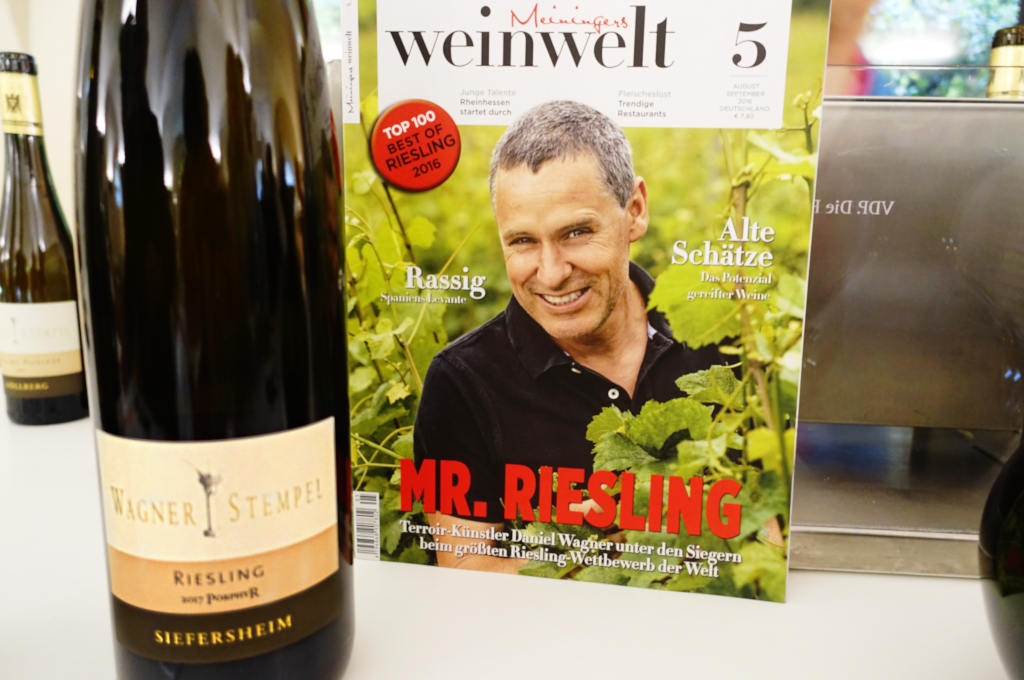
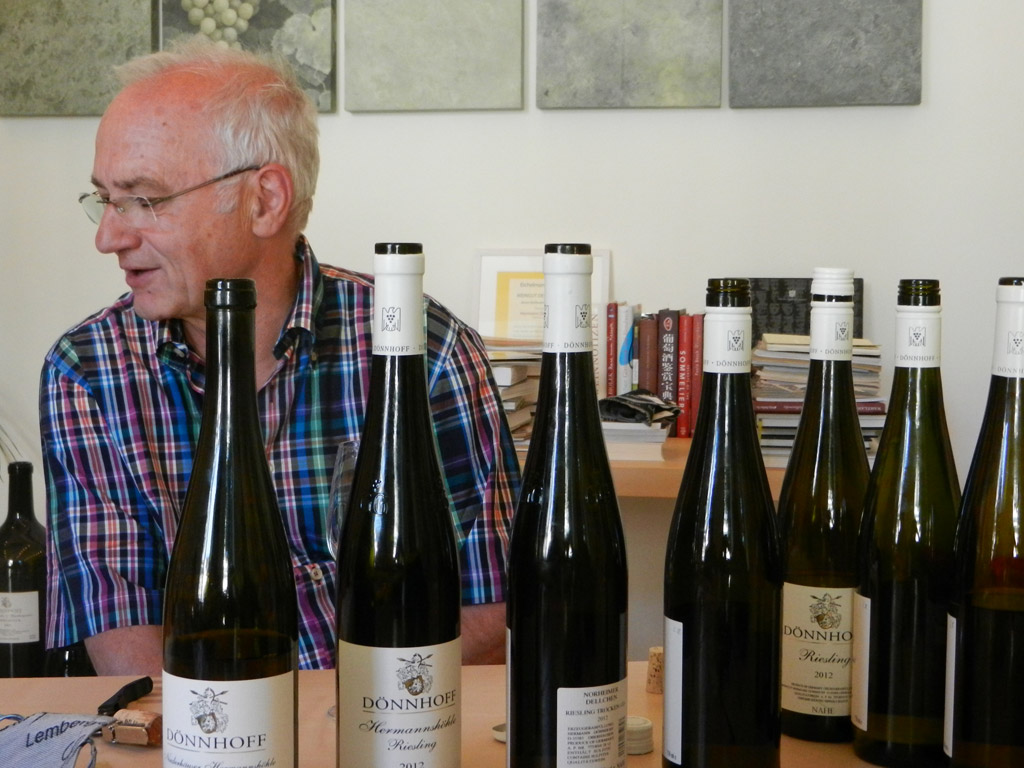
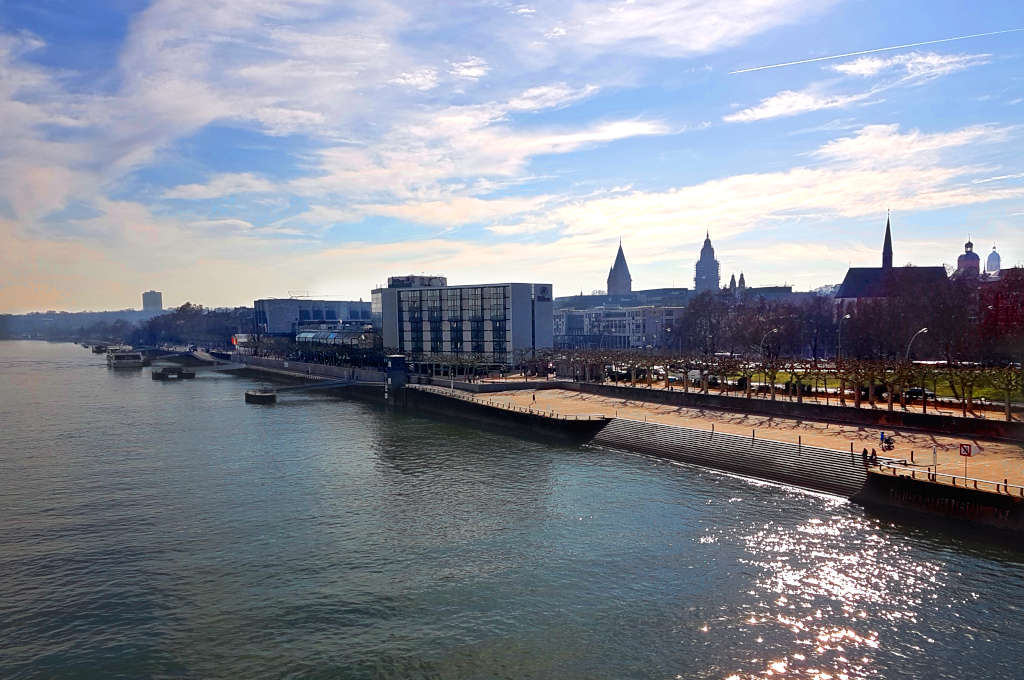
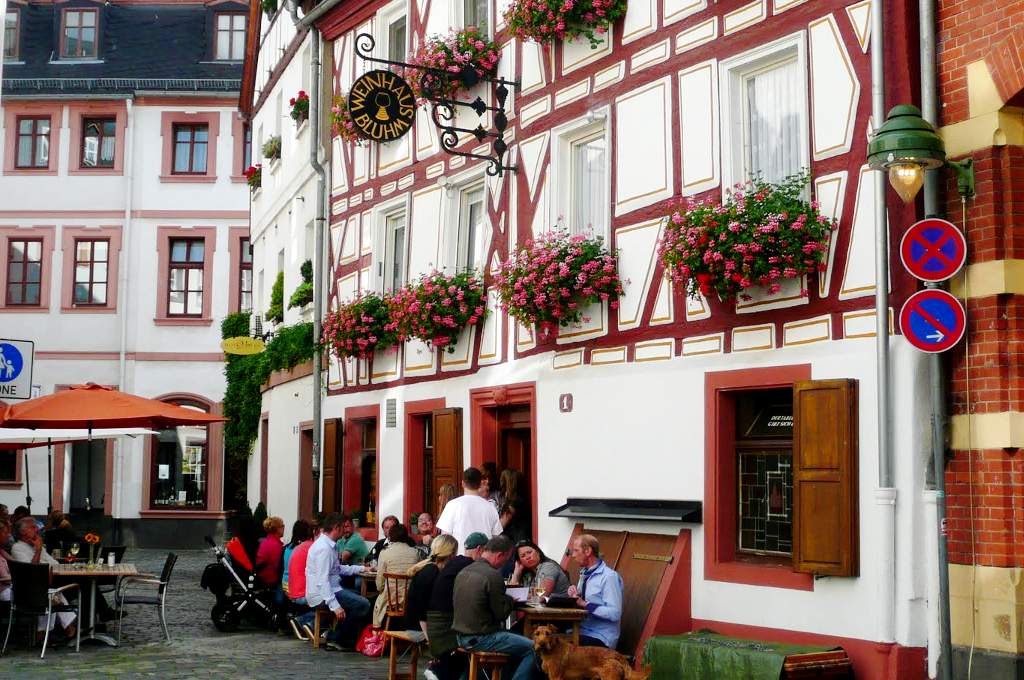
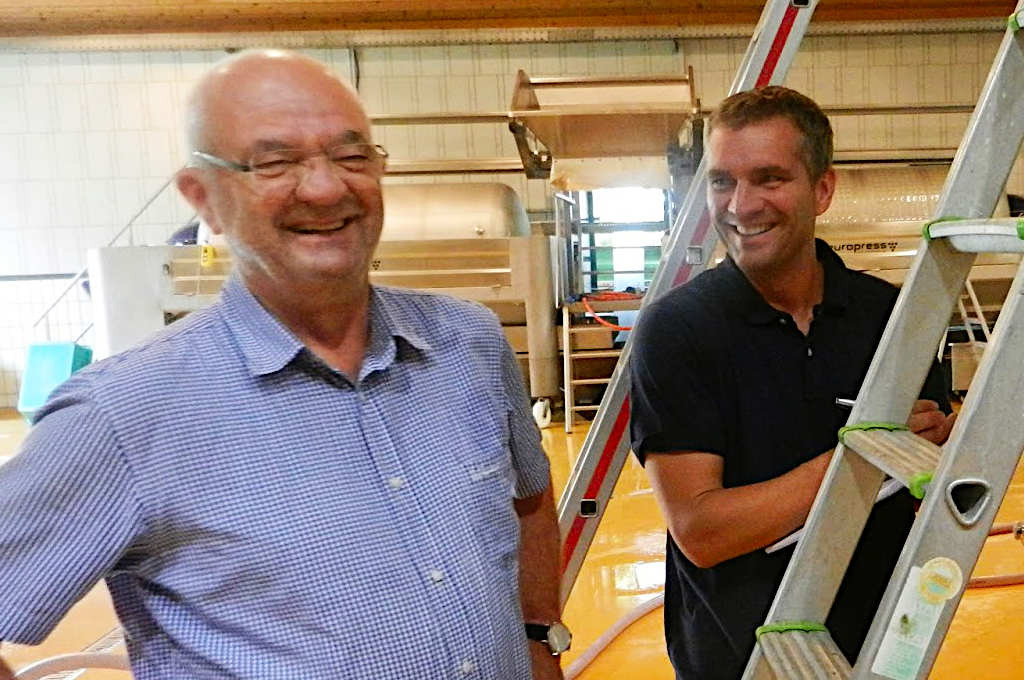
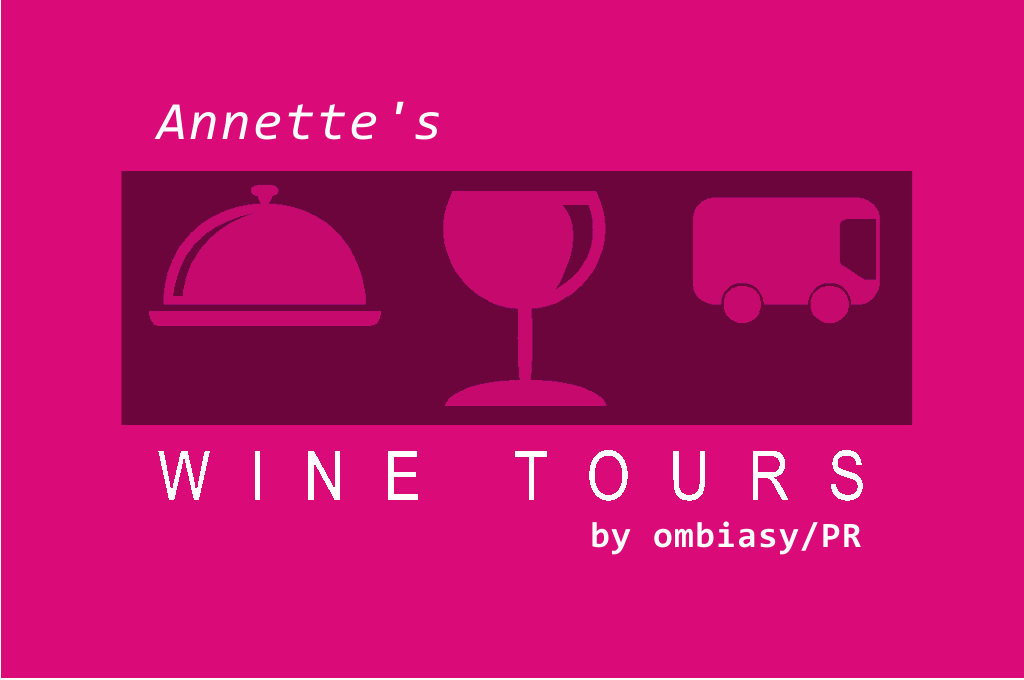
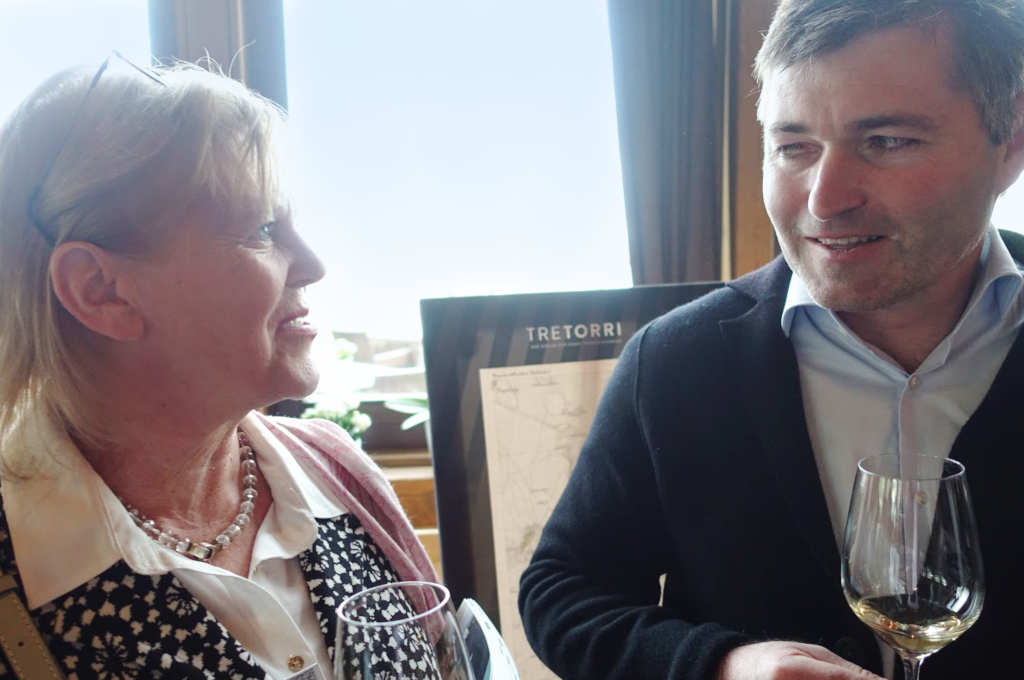
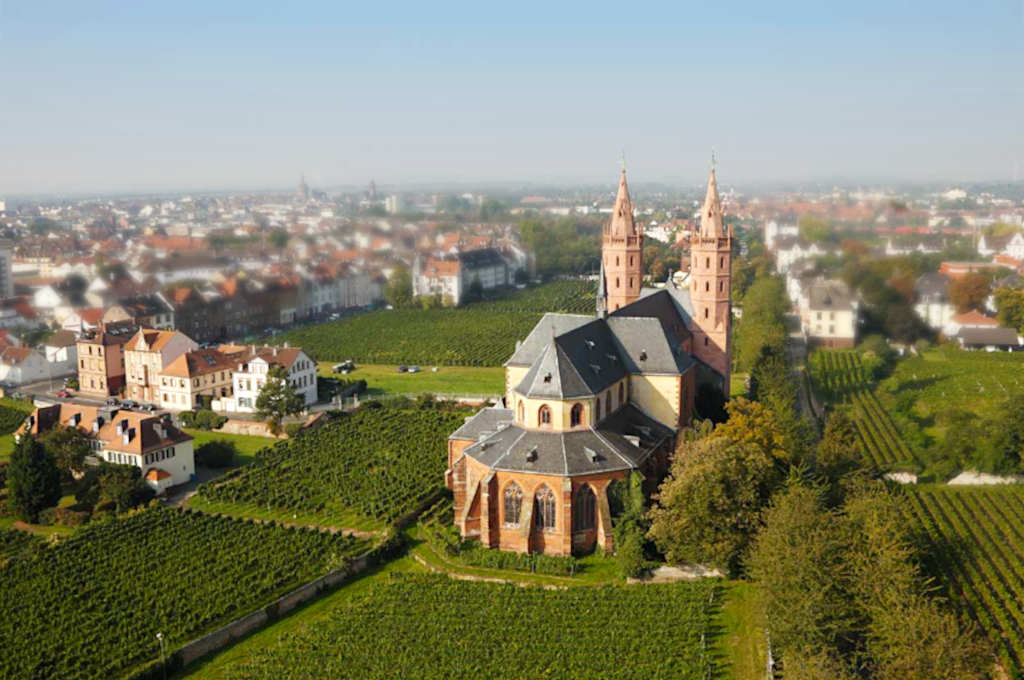
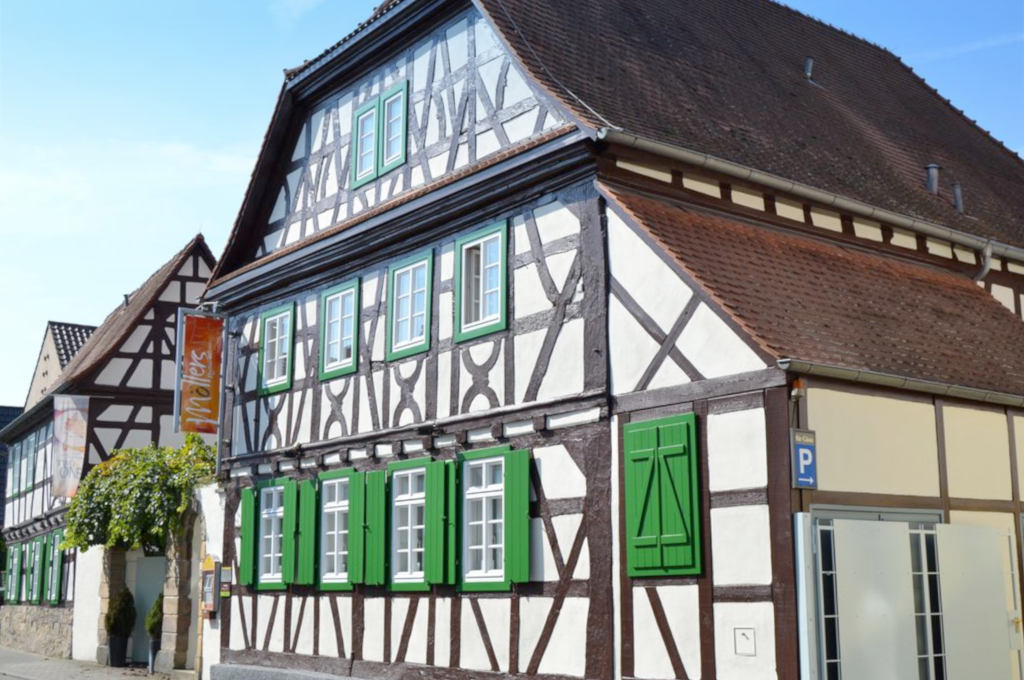
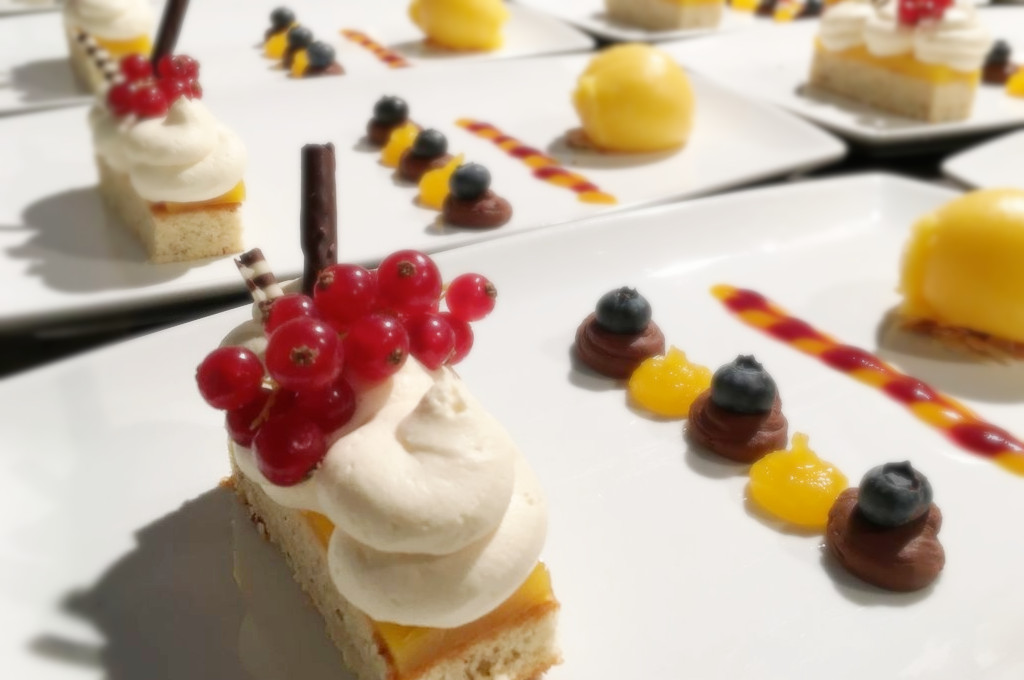
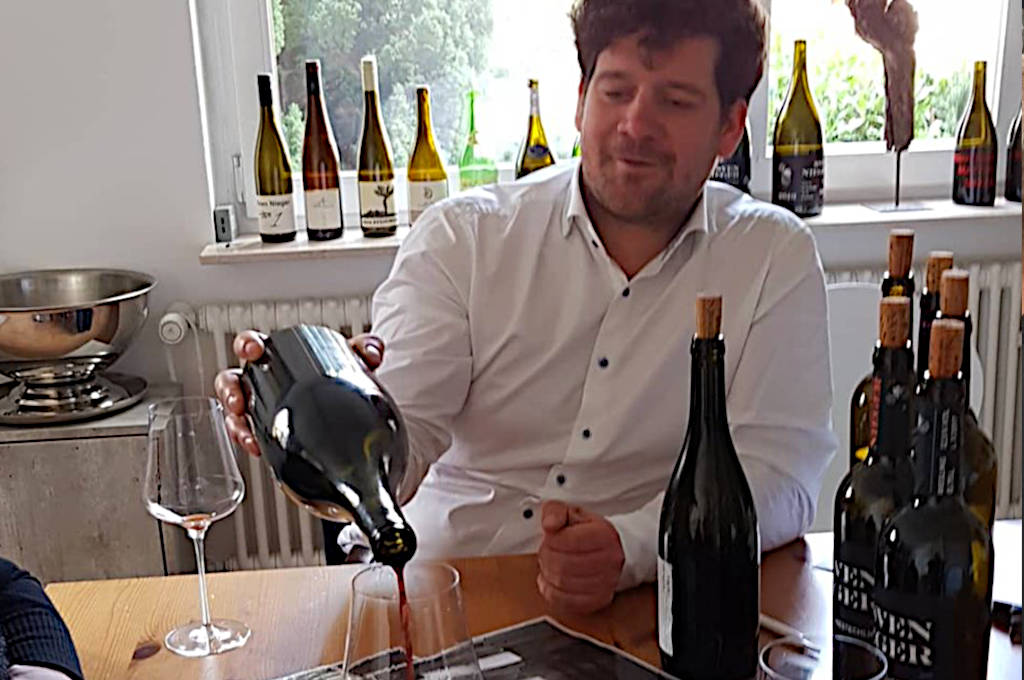
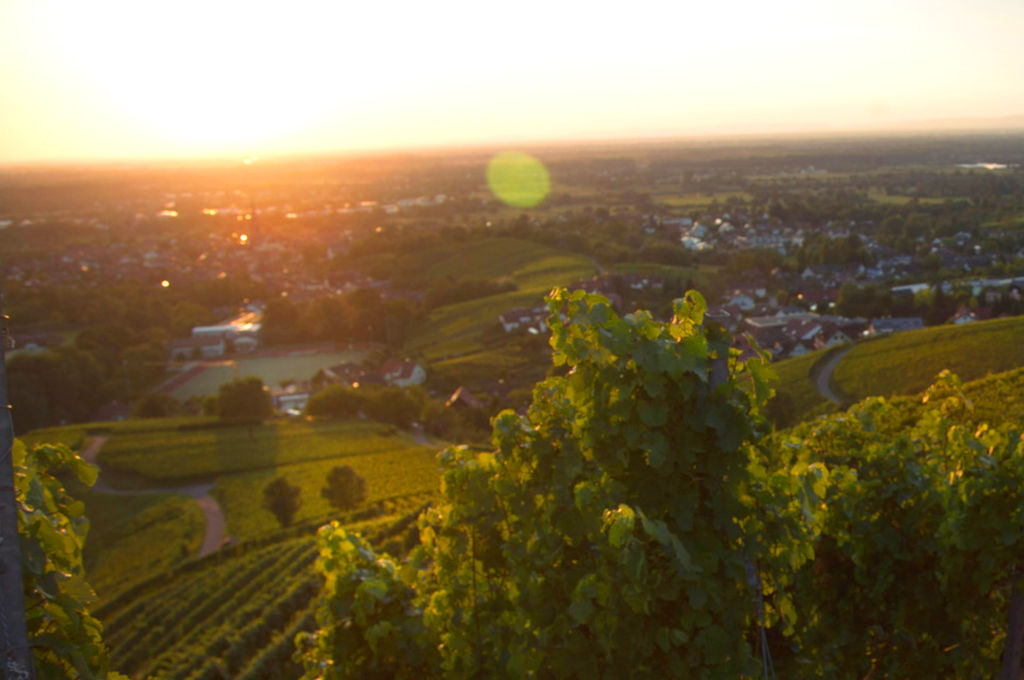
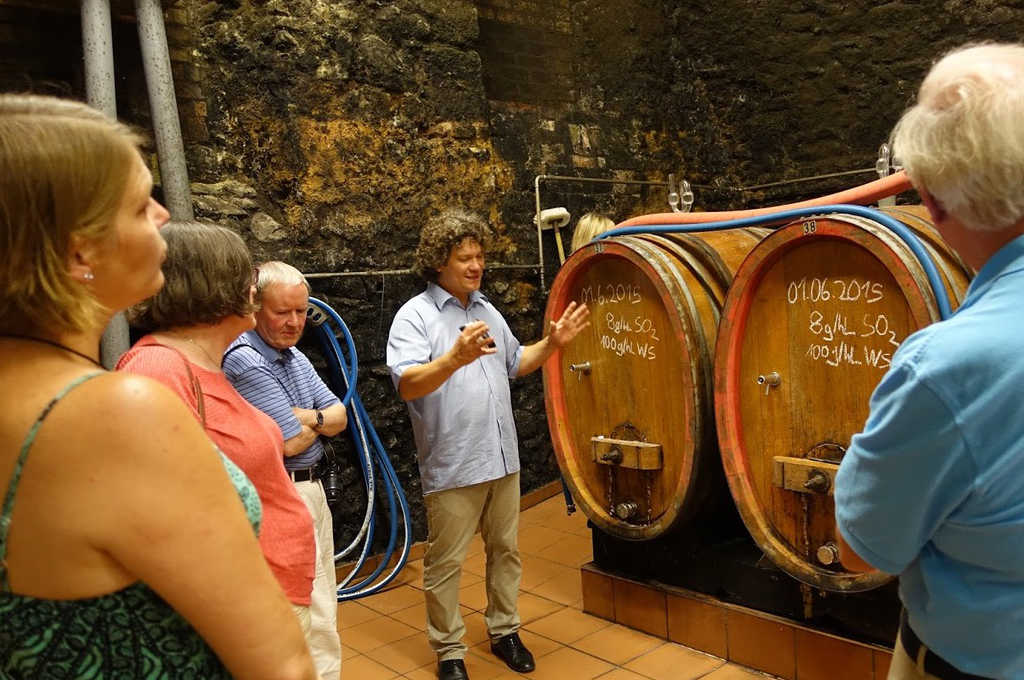
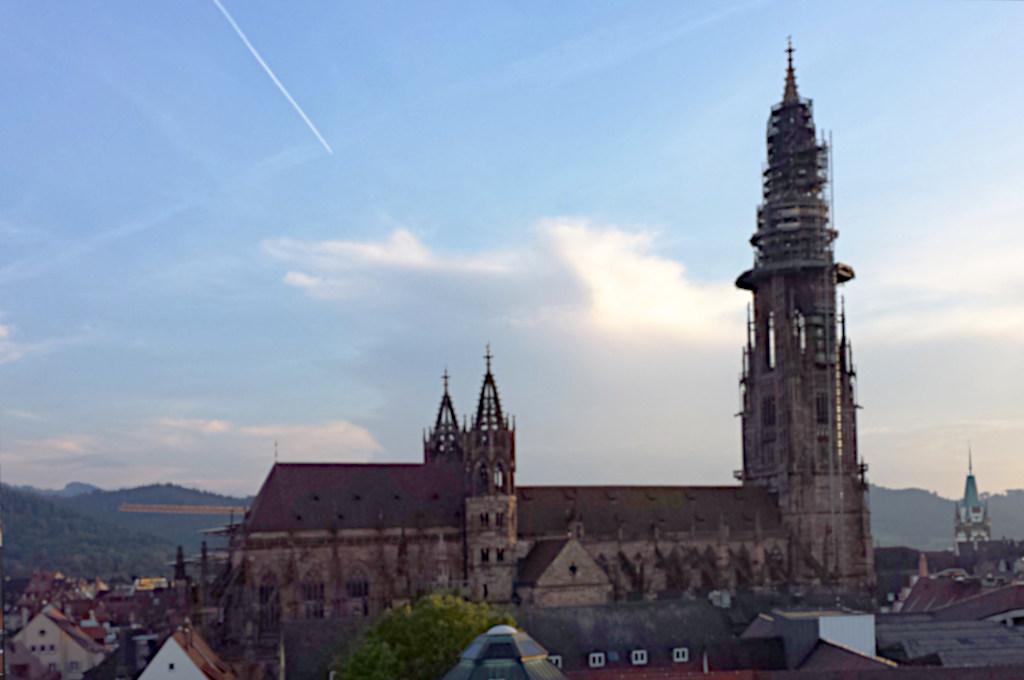
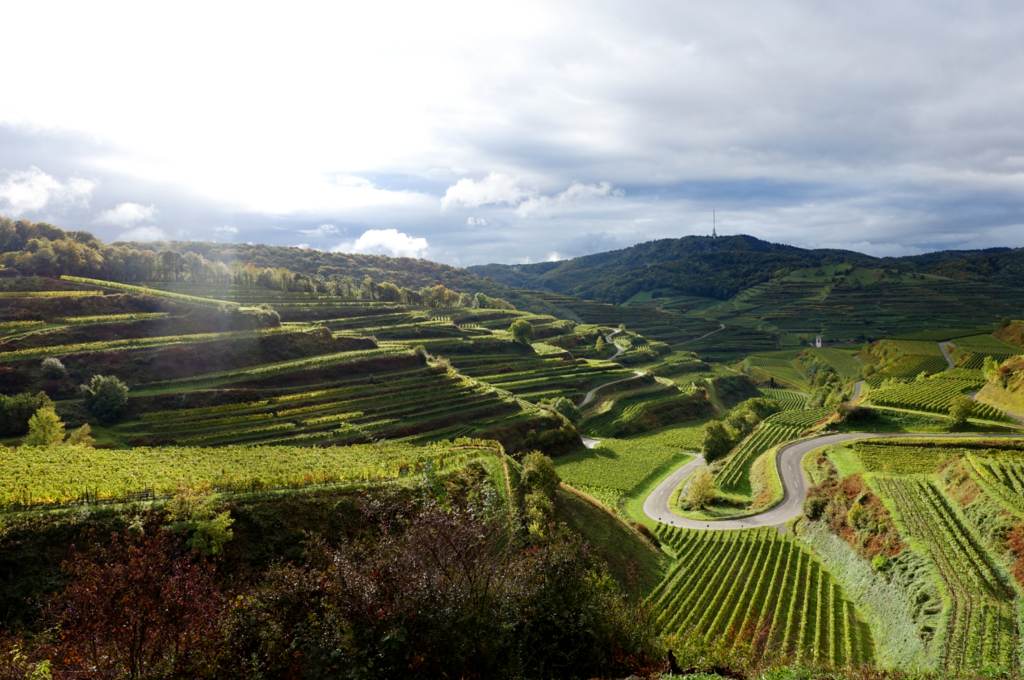
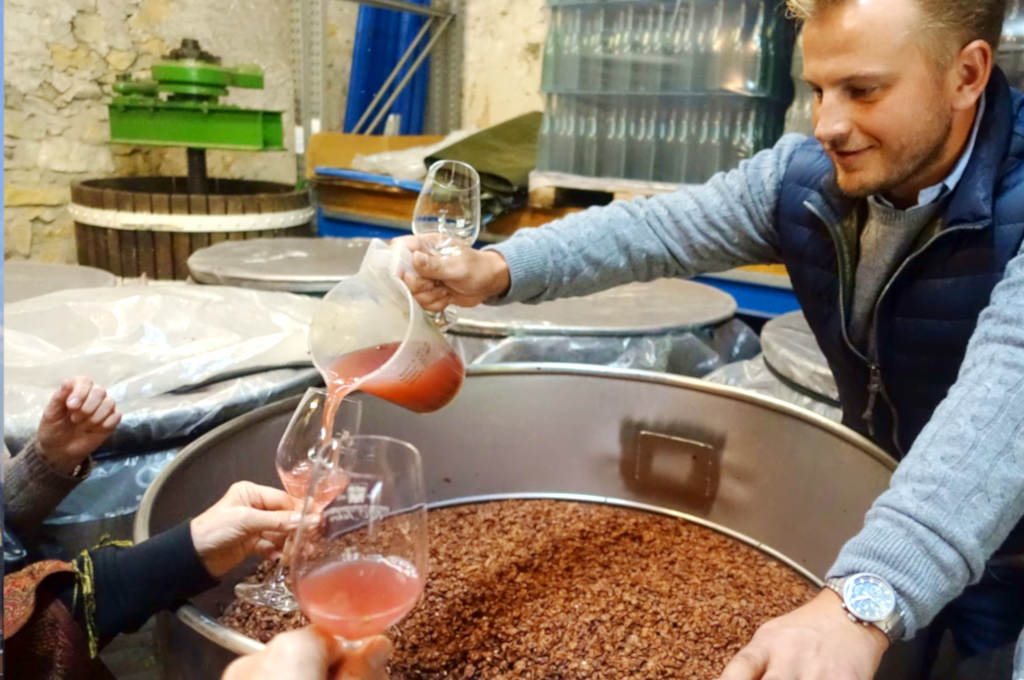
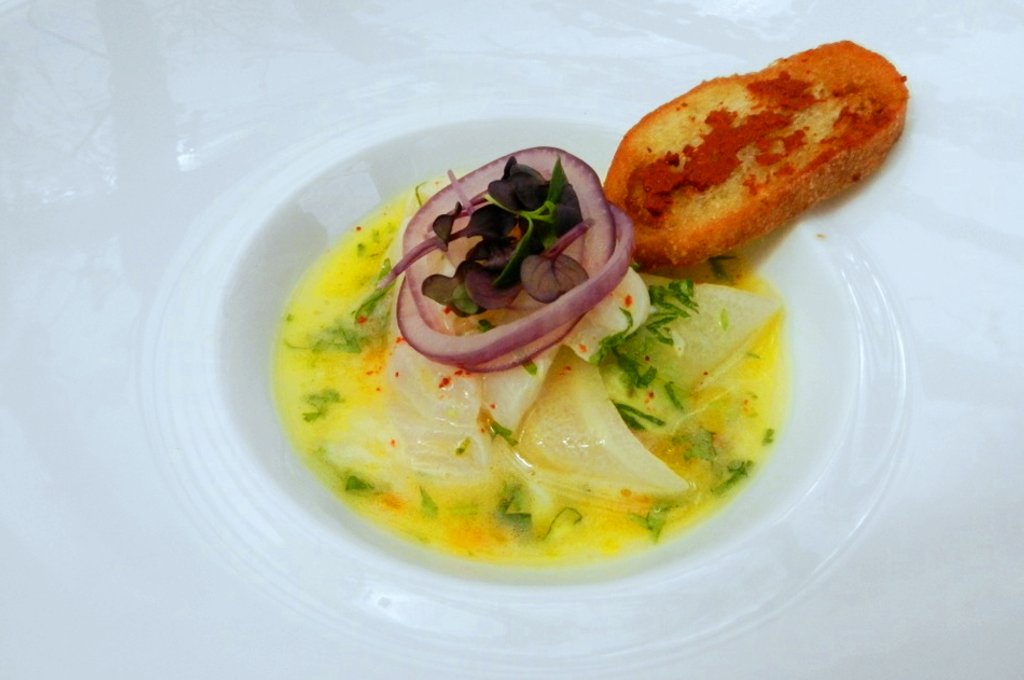
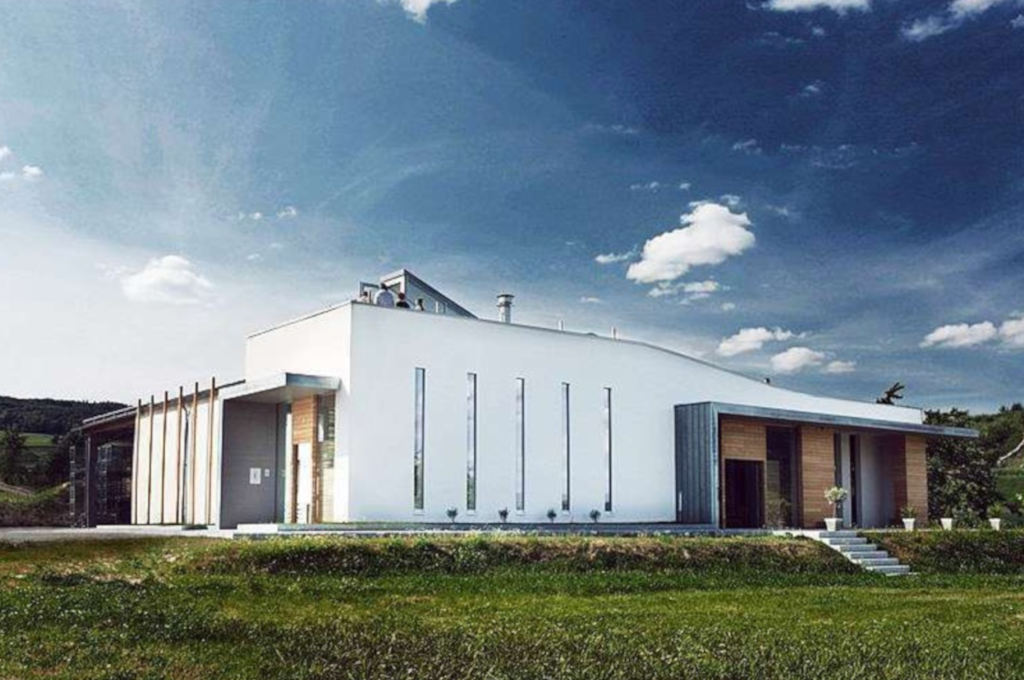
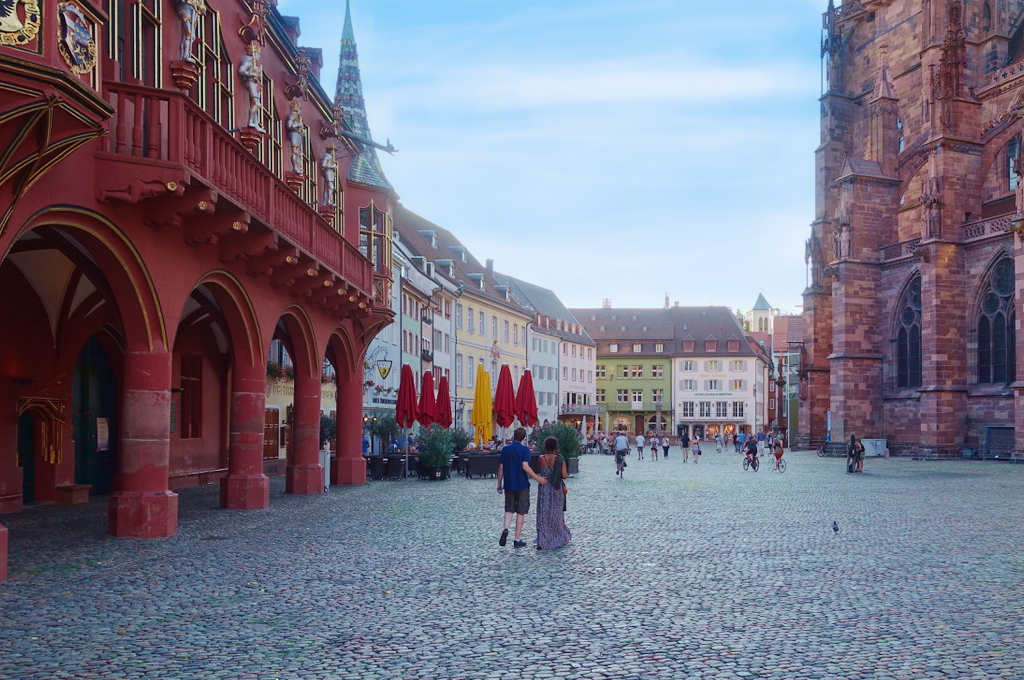
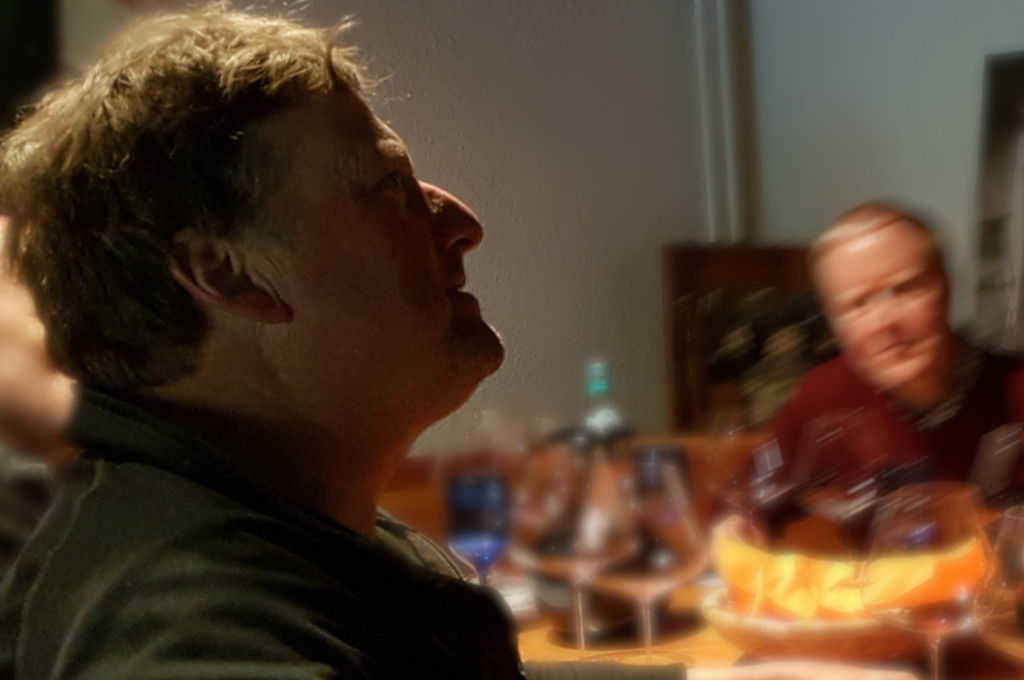
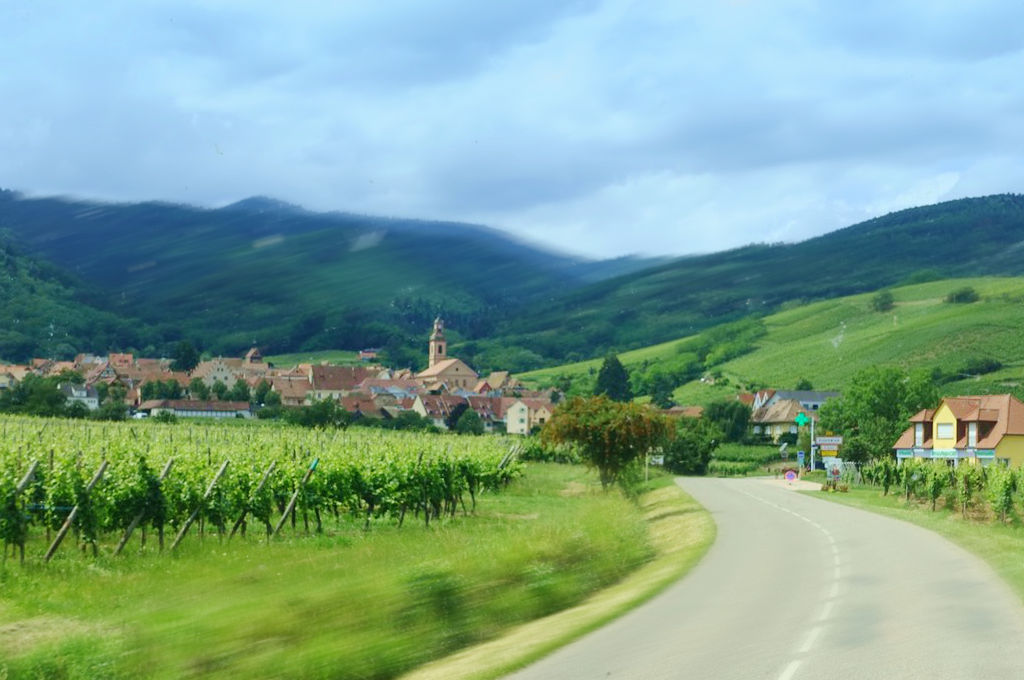
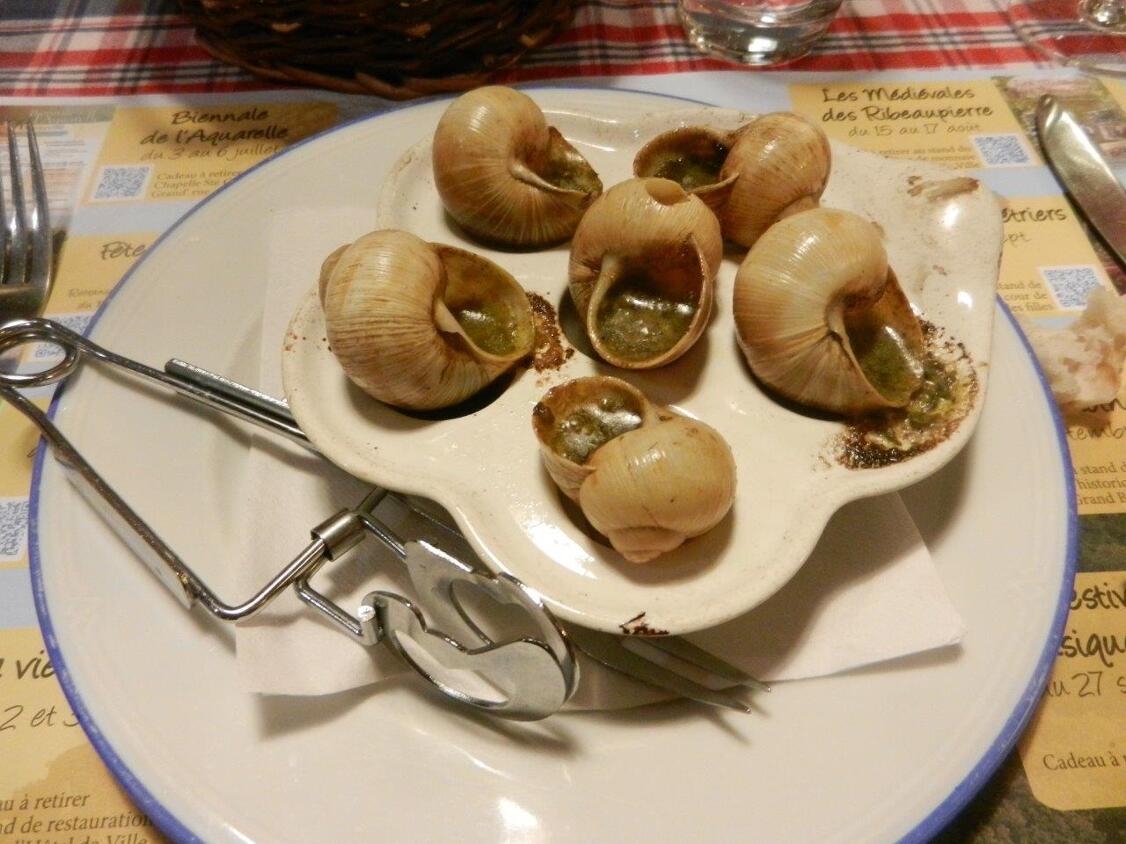
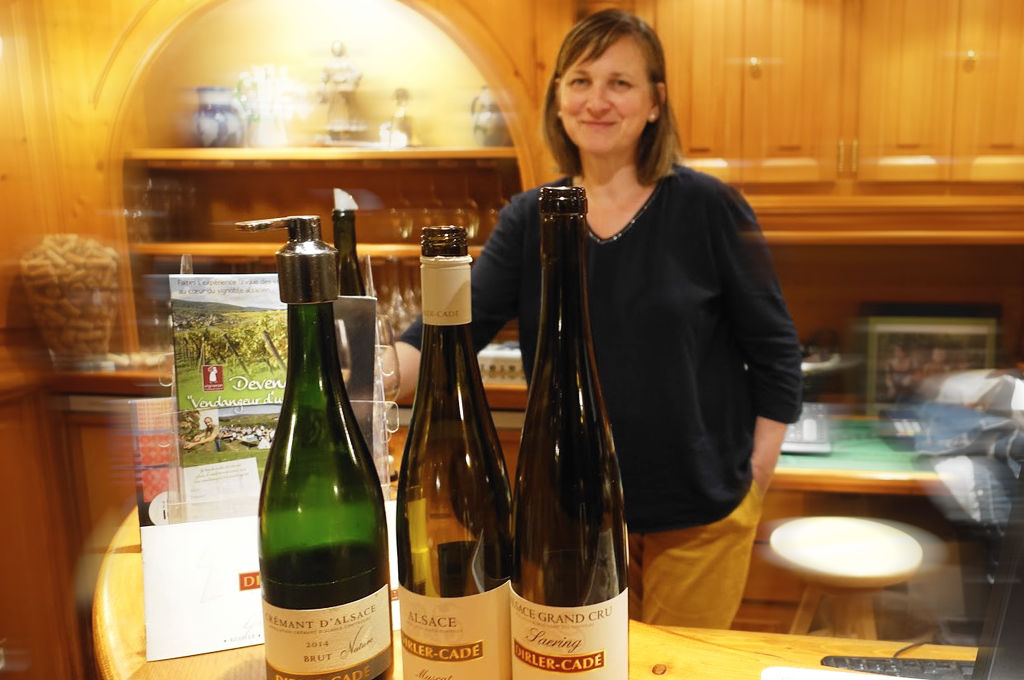
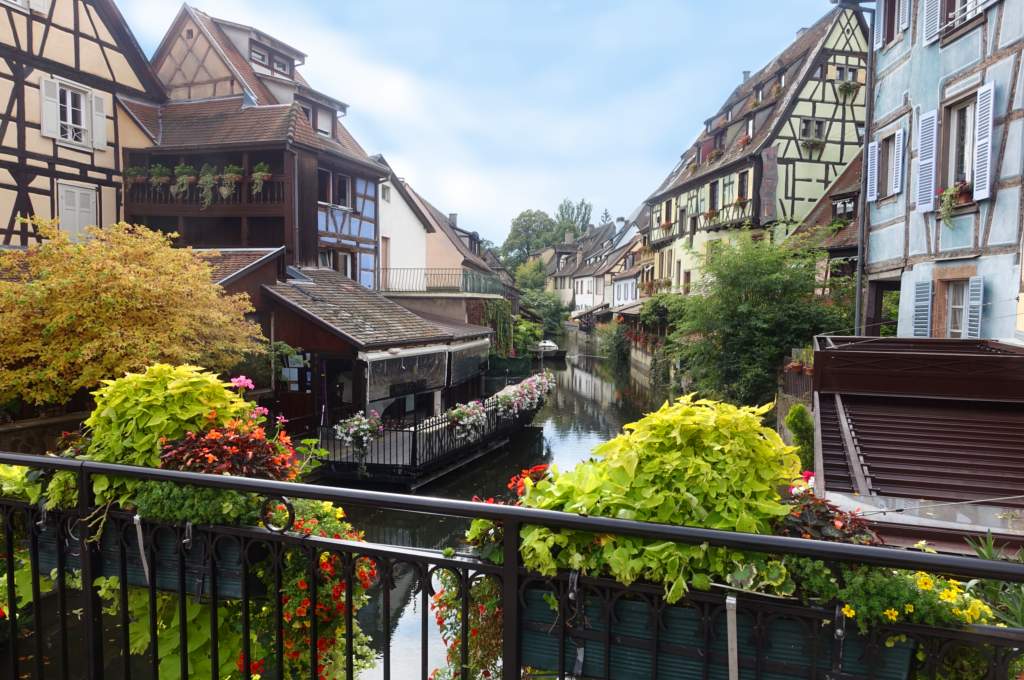
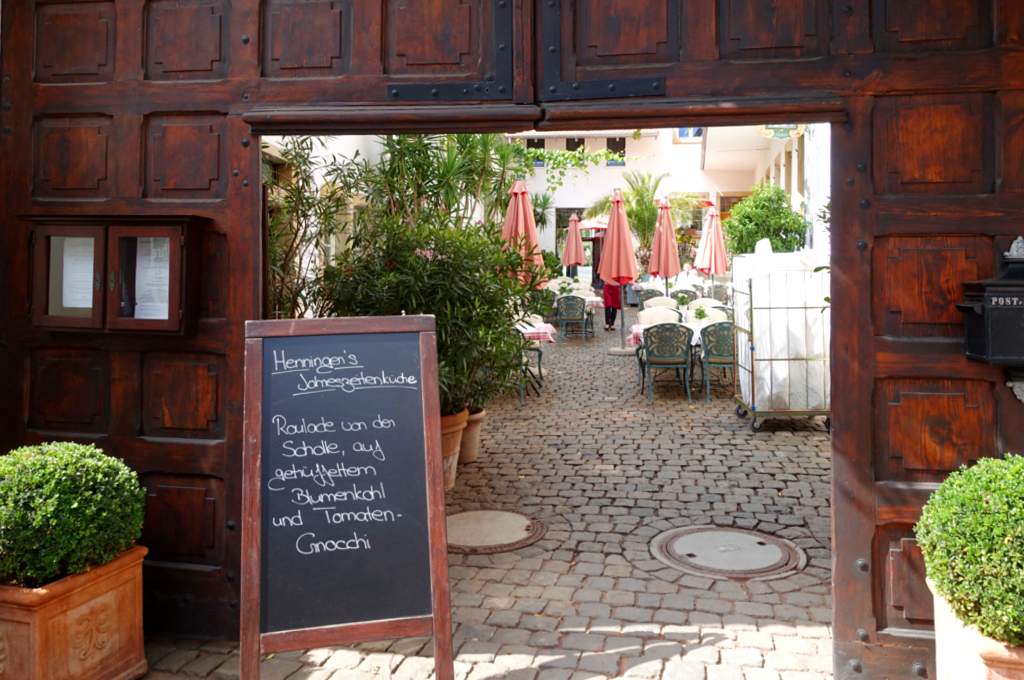
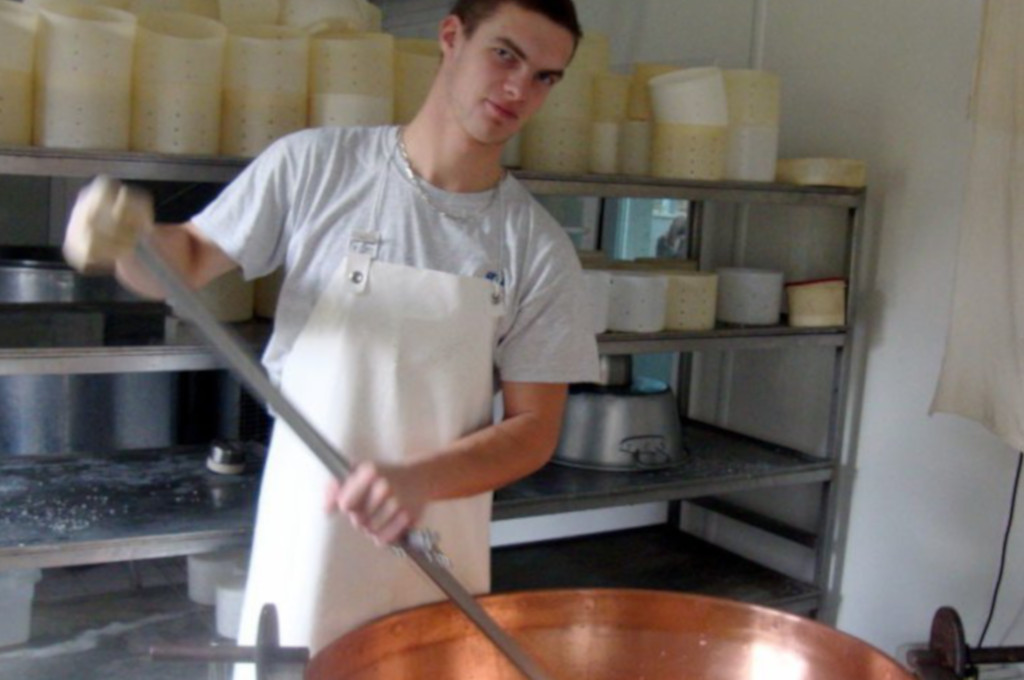
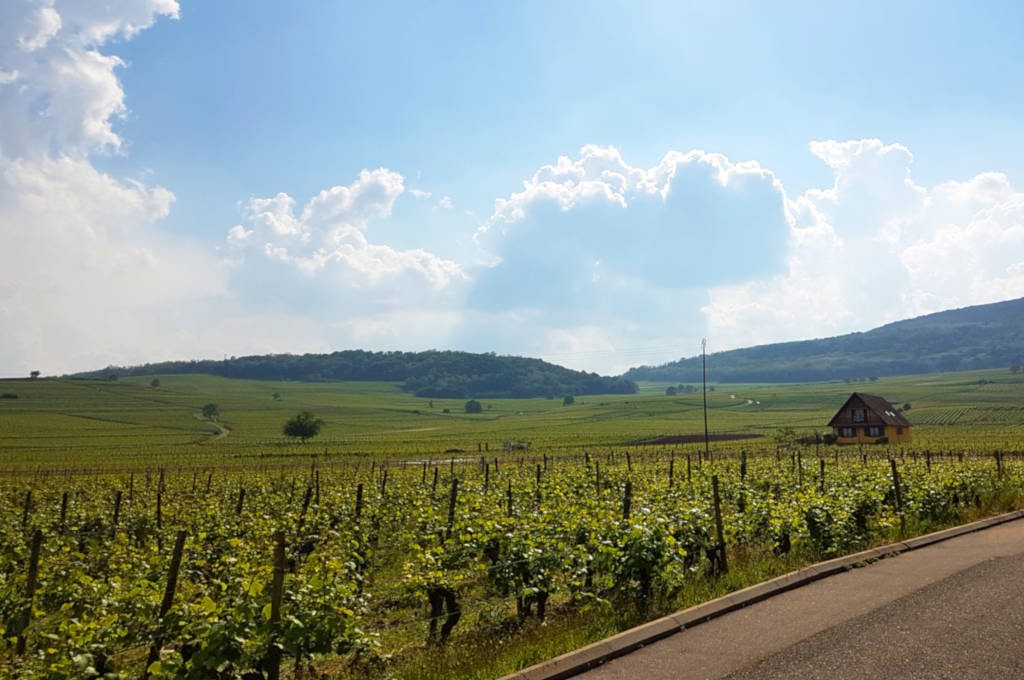
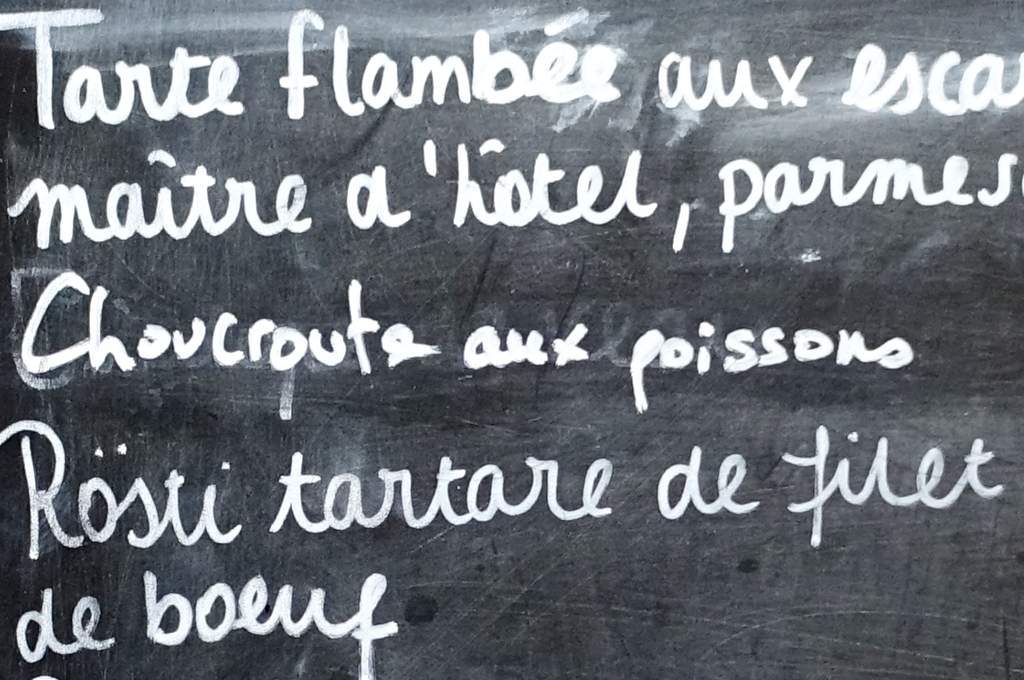
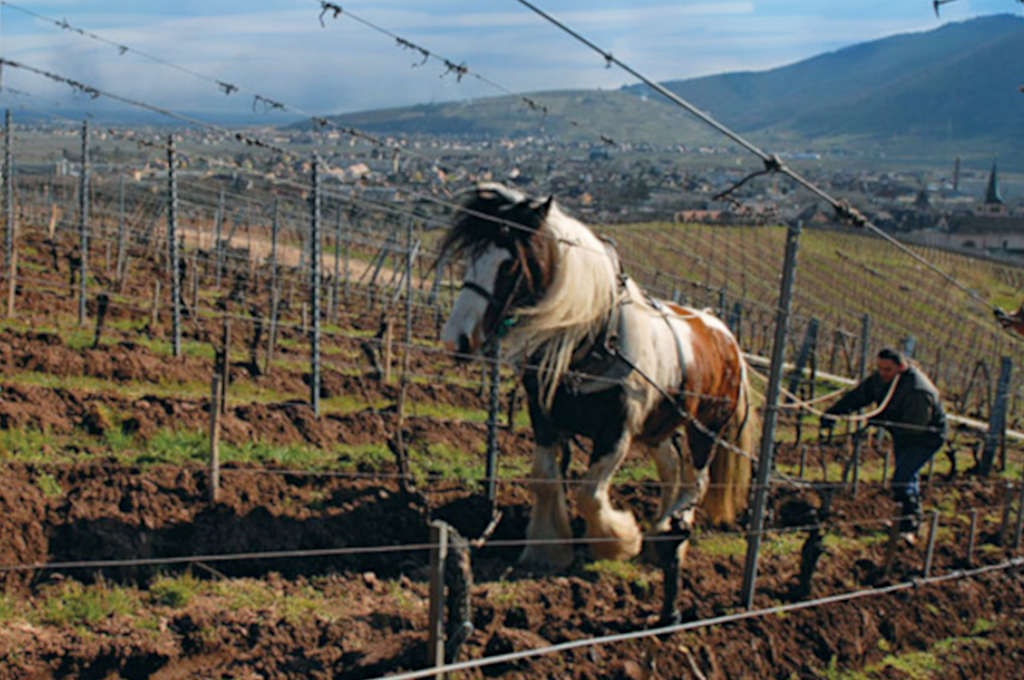
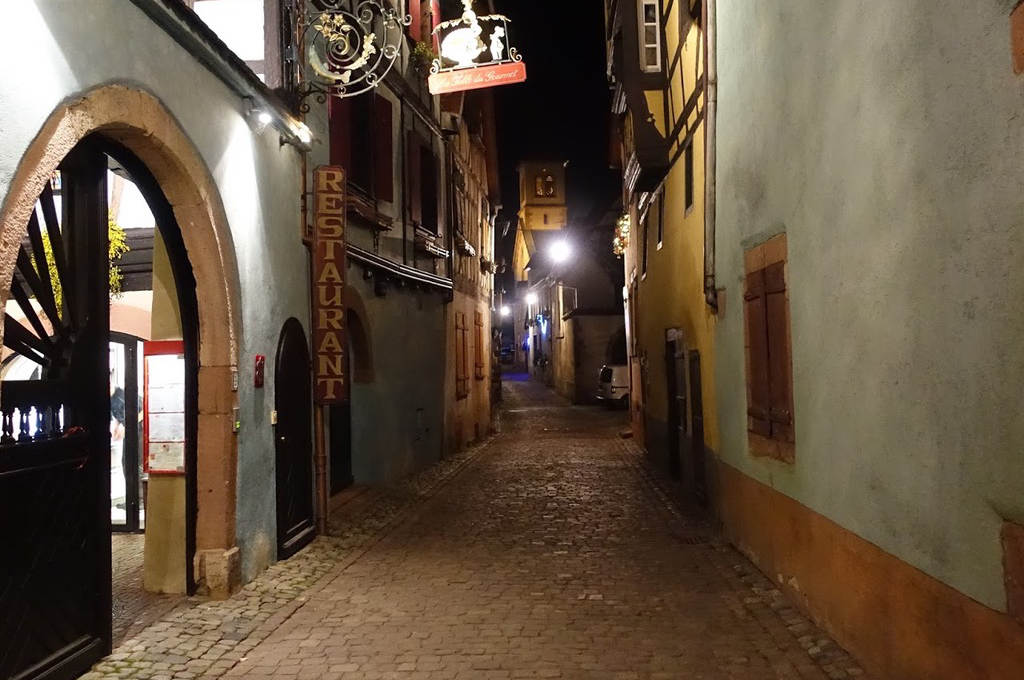
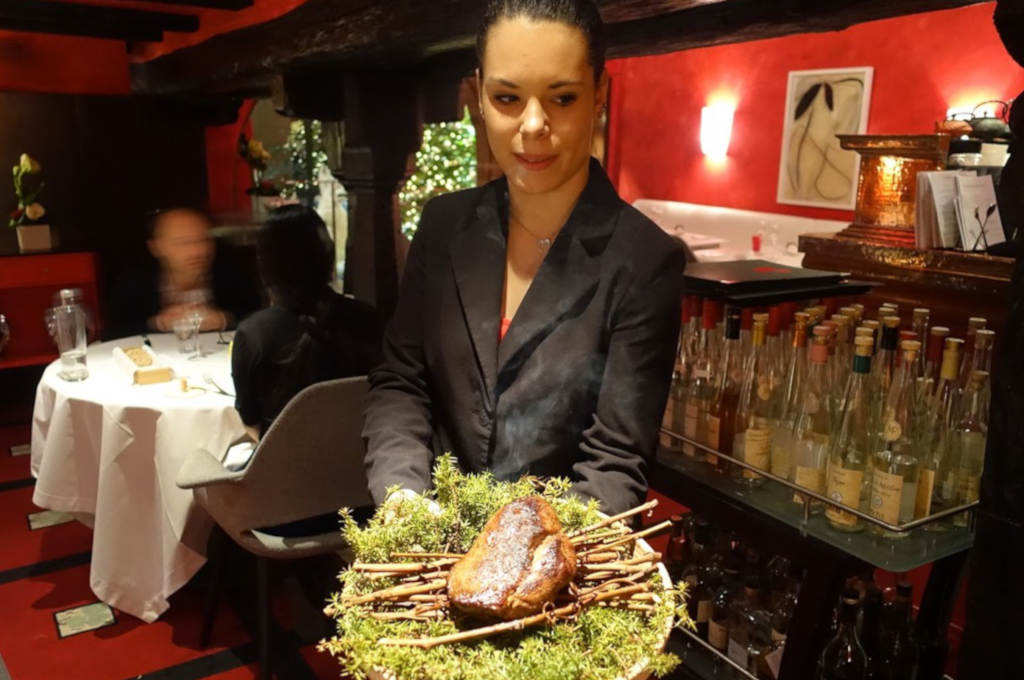
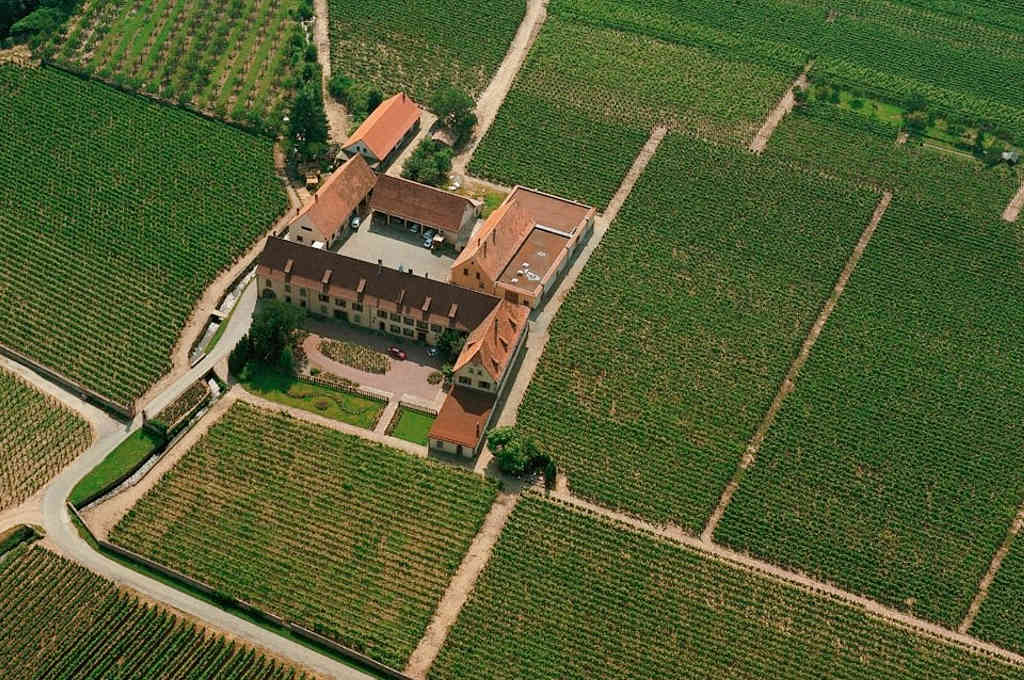
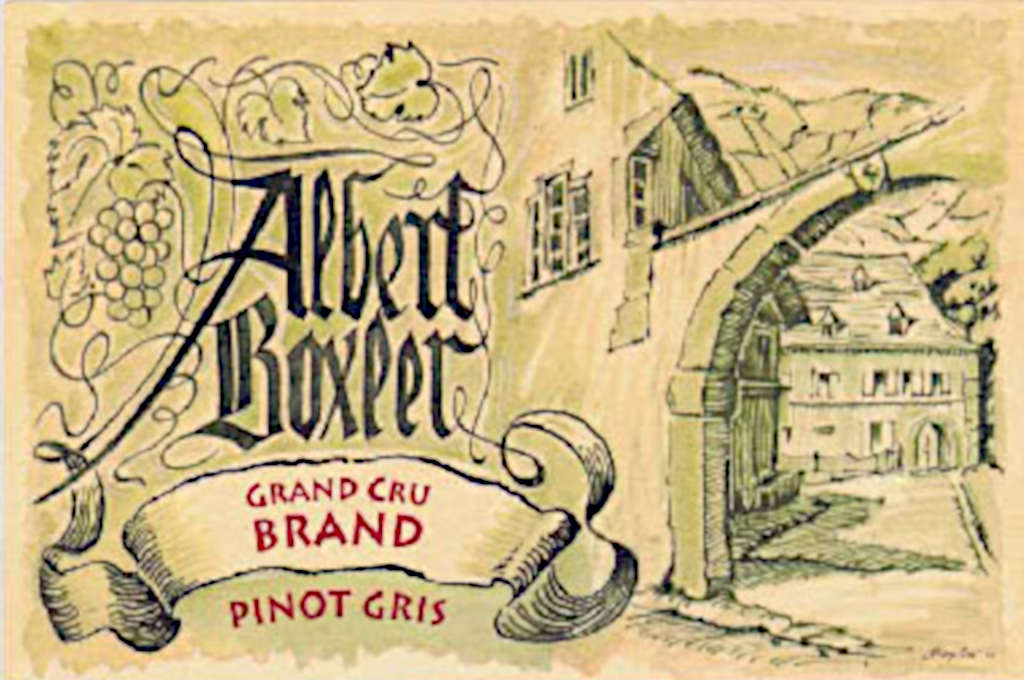
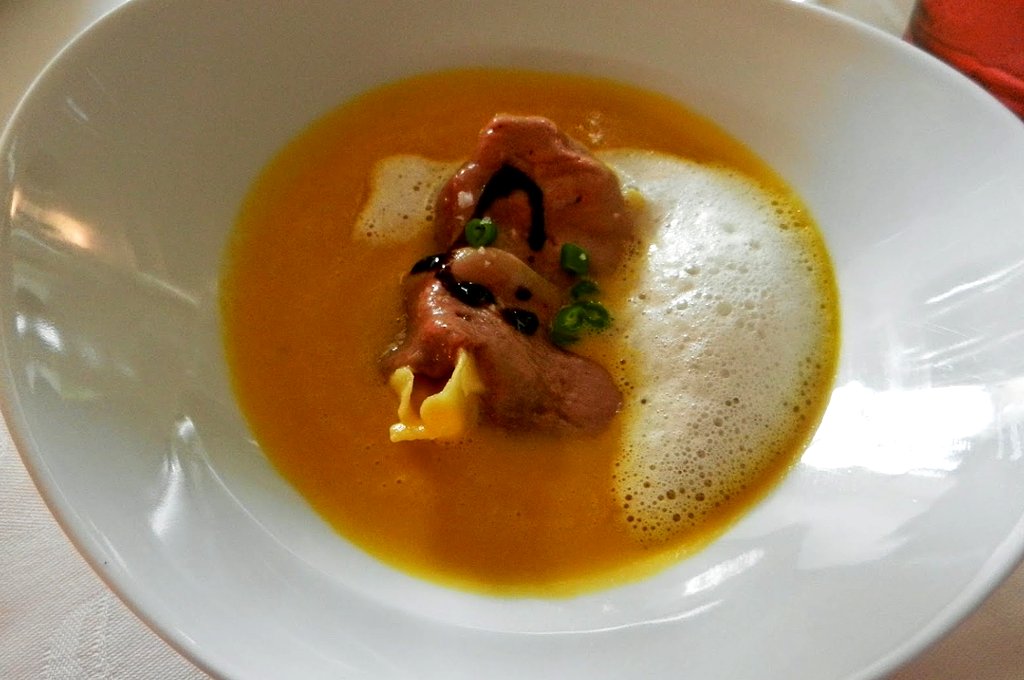
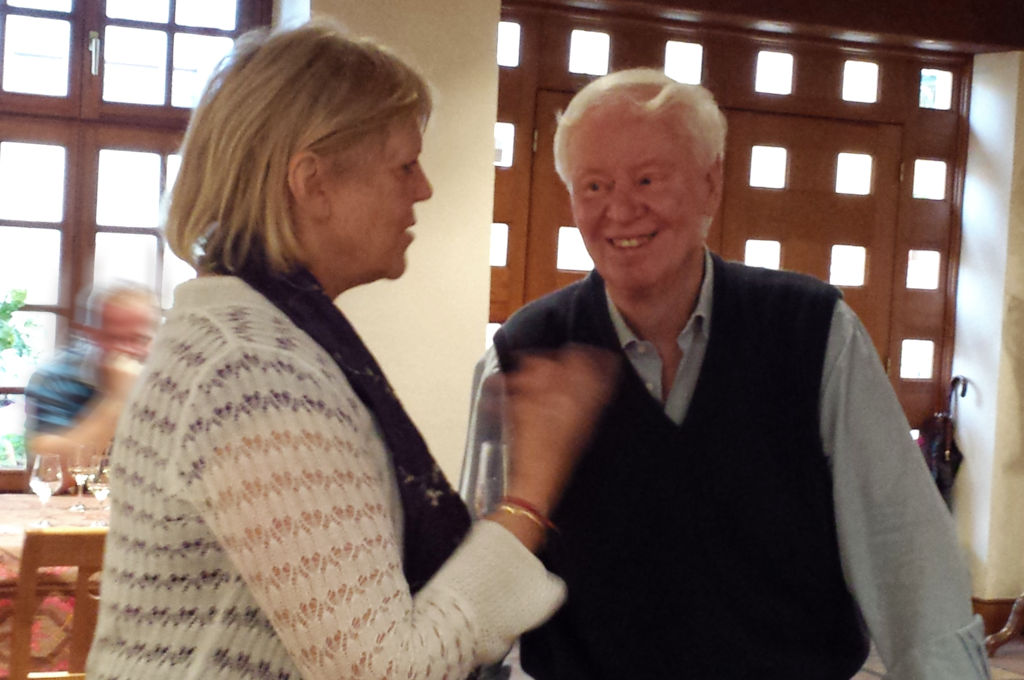
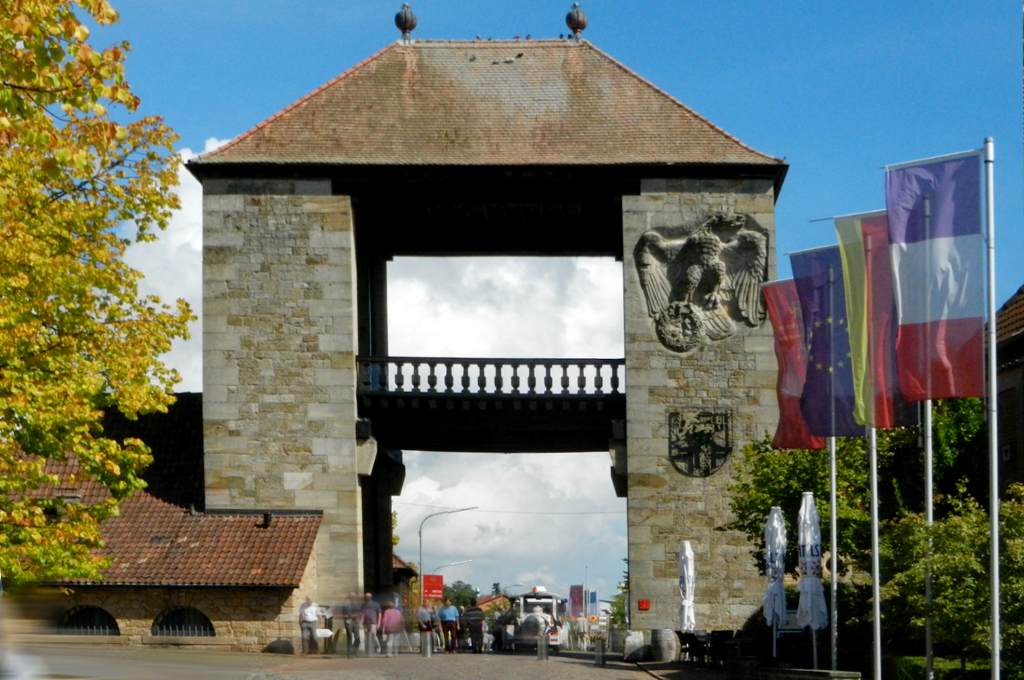 We will be greeted by the Deutsches Weintor (German Wine Gate), a landmark built in 1936 which greets the traveler when coming from France. It also marks the beginning of the German Wine Trail. You can climb 18 meters to the top and enjoy the view over the breathtakingly beautiful landscape south towards the Alsace and north towards the Pfalz.
We will be greeted by the Deutsches Weintor (German Wine Gate), a landmark built in 1936 which greets the traveler when coming from France. It also marks the beginning of the German Wine Trail. You can climb 18 meters to the top and enjoy the view over the breathtakingly beautiful landscape south towards the Alsace and north towards the Pfalz.